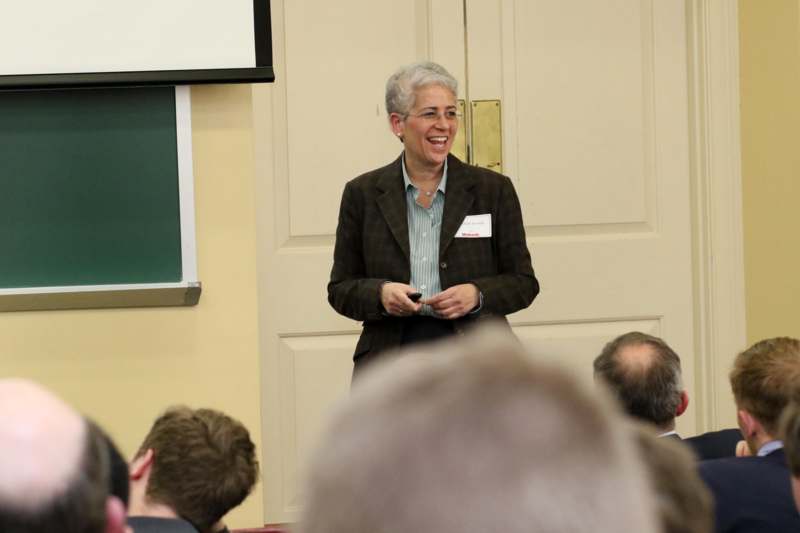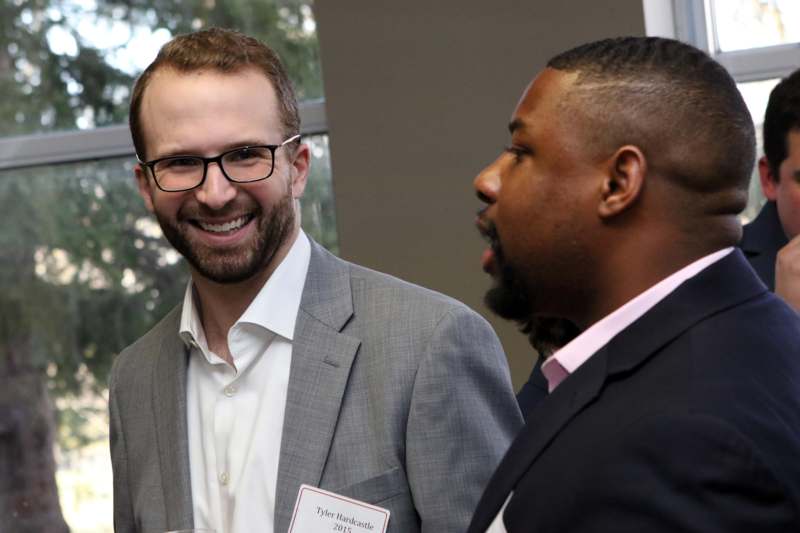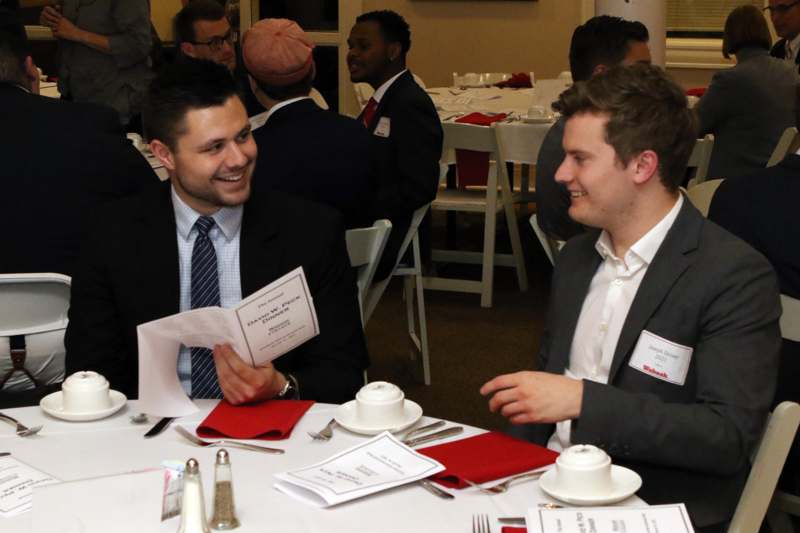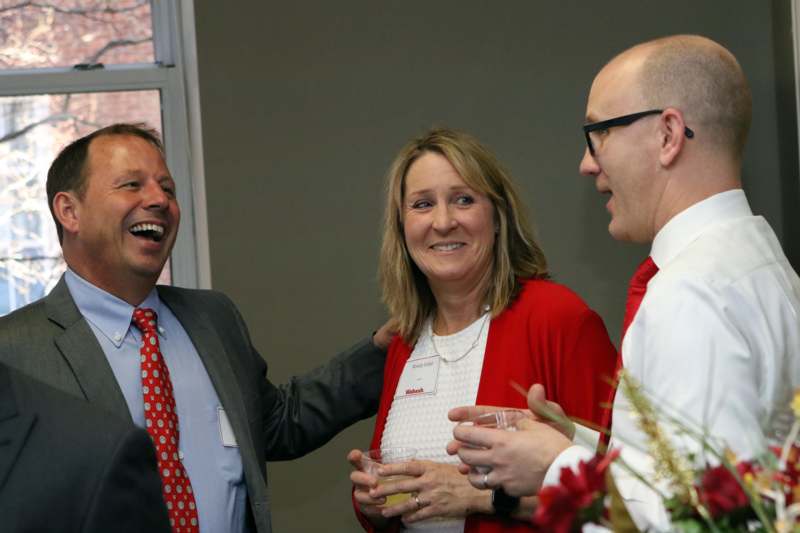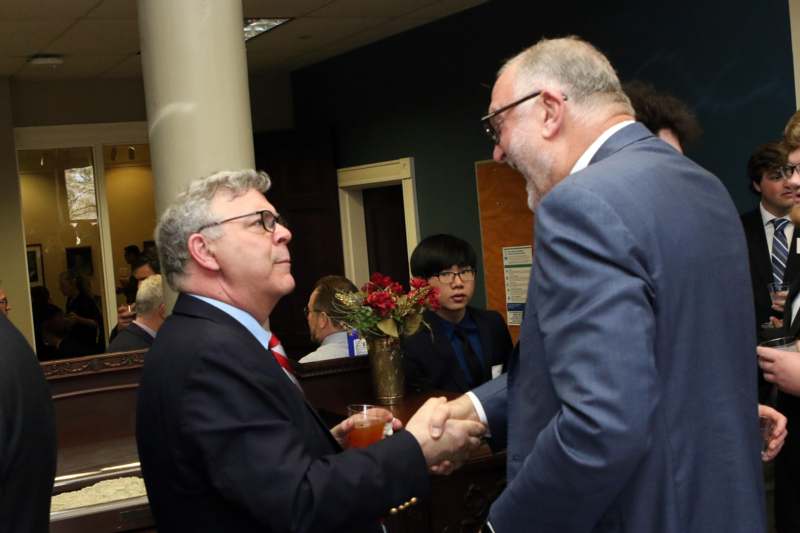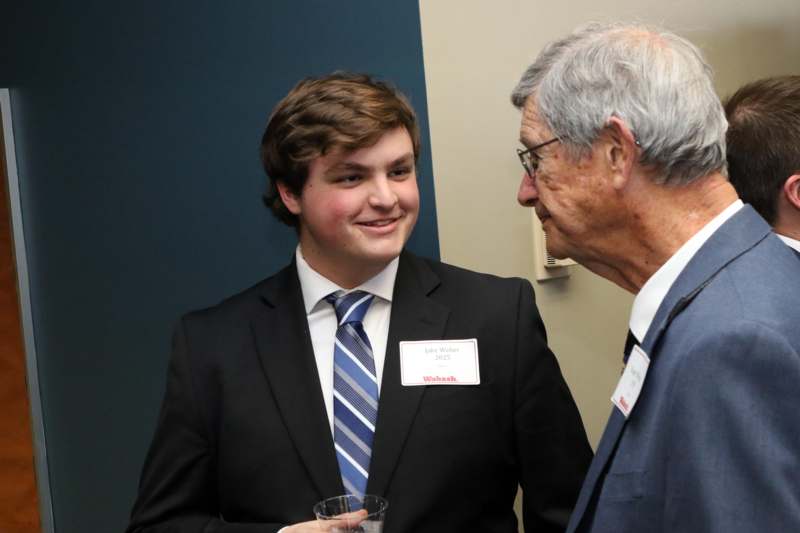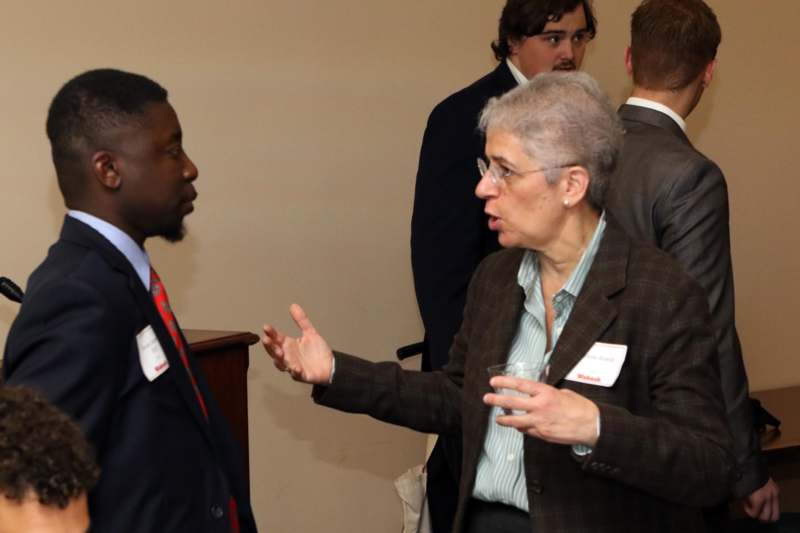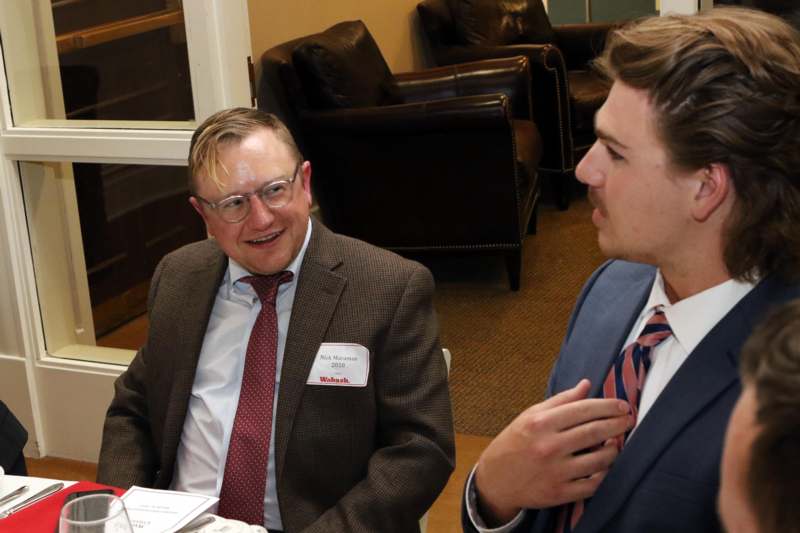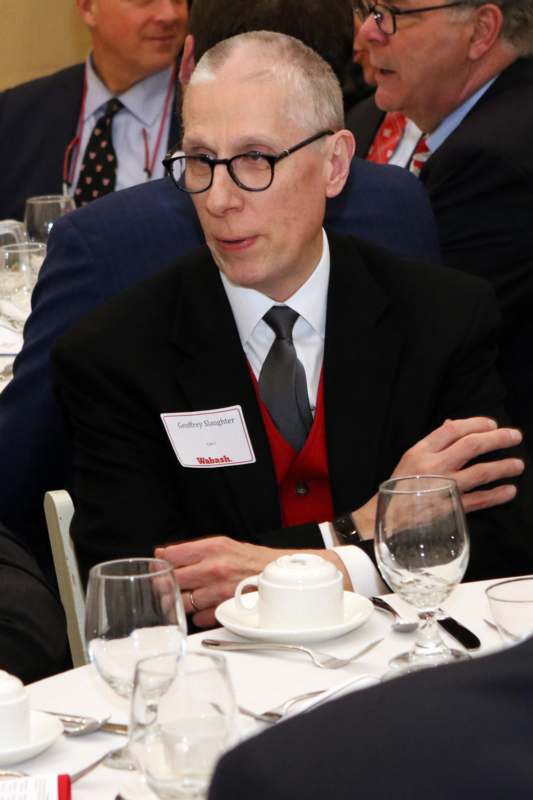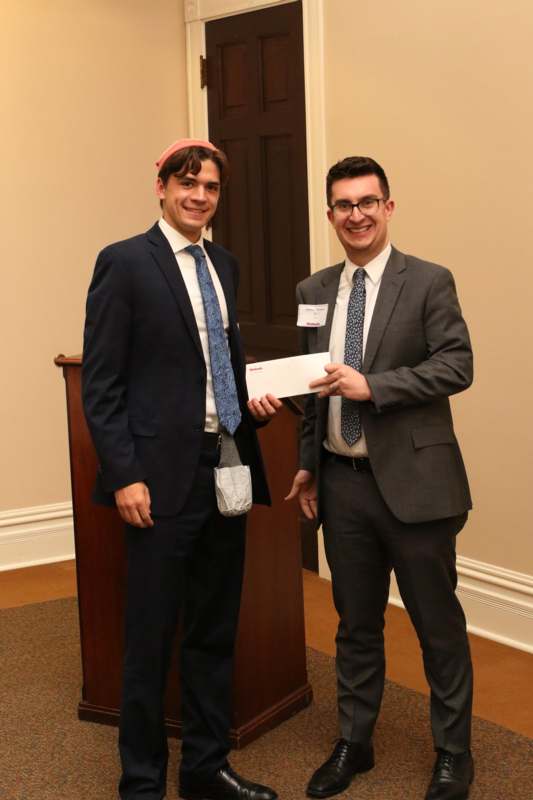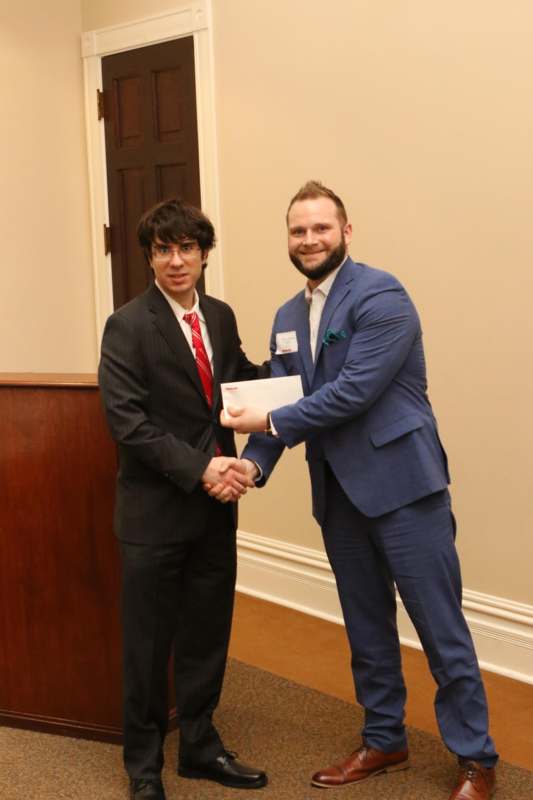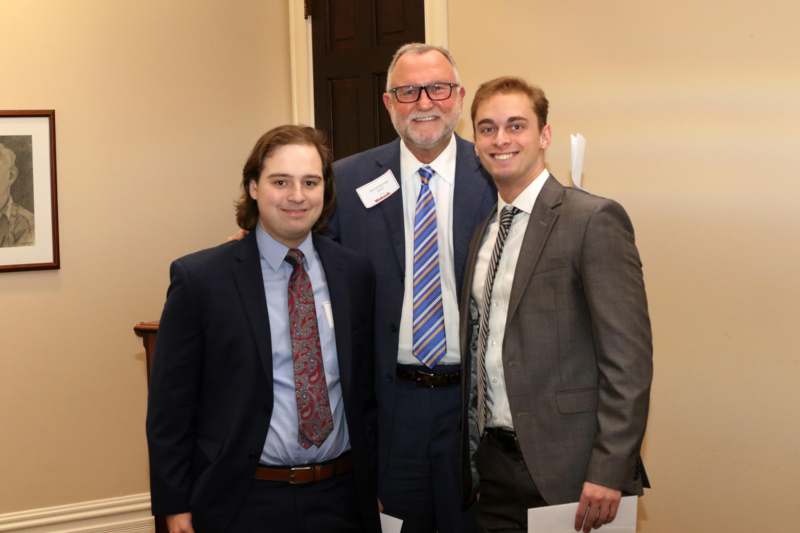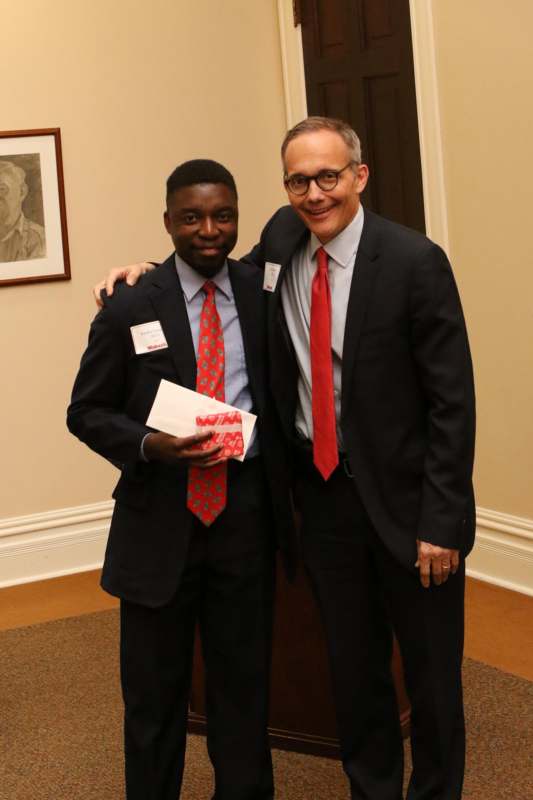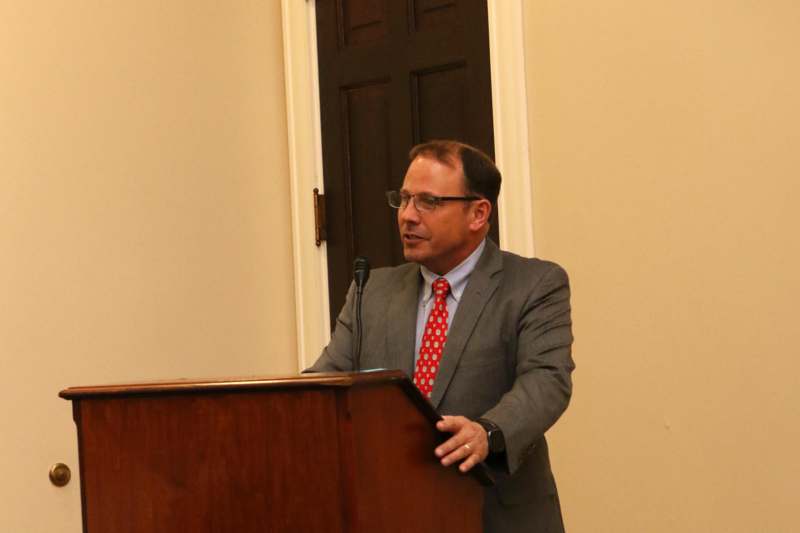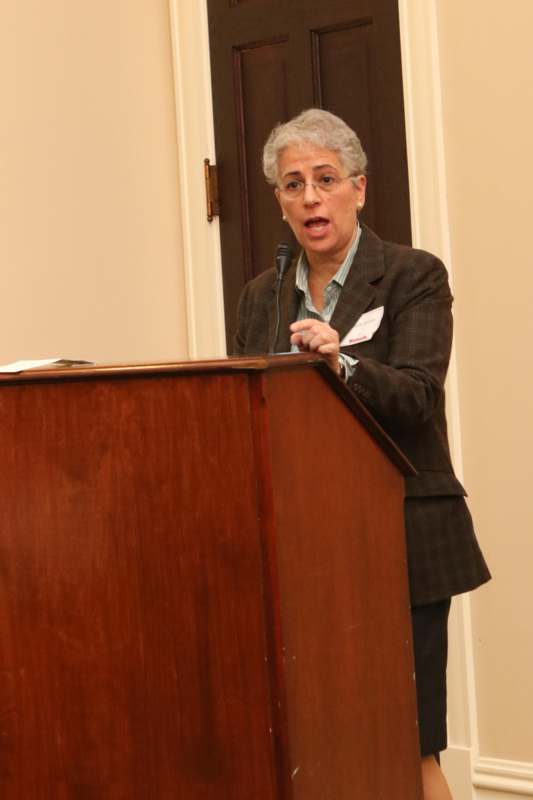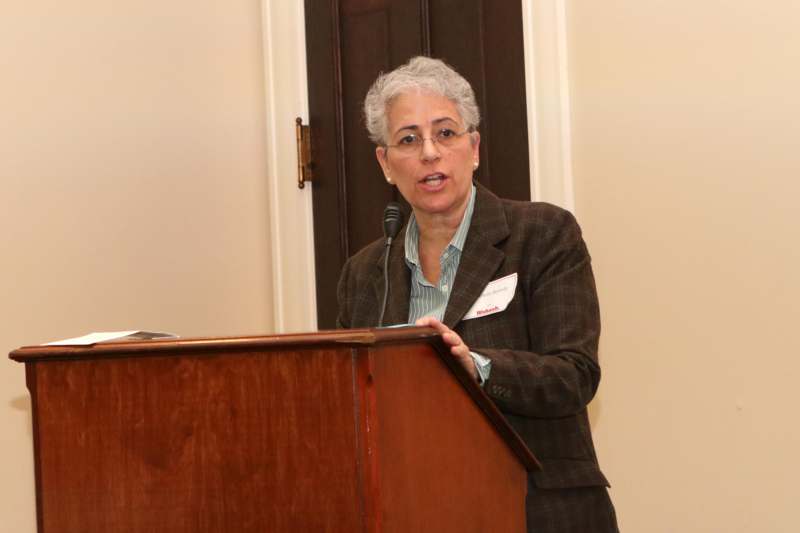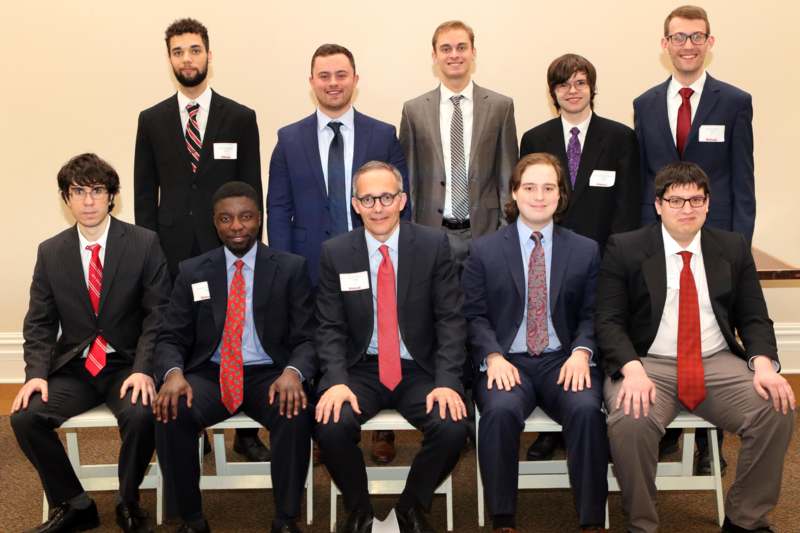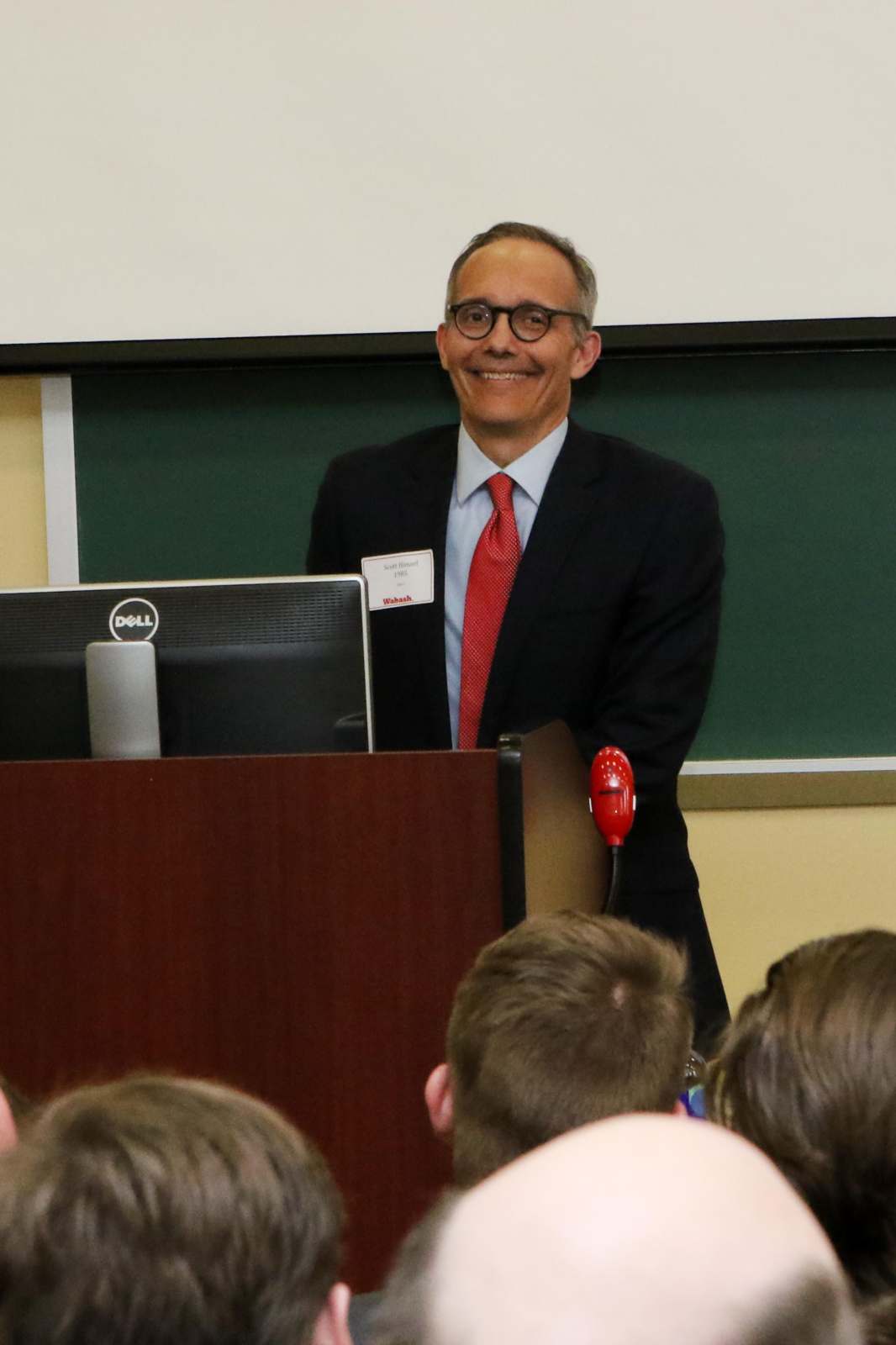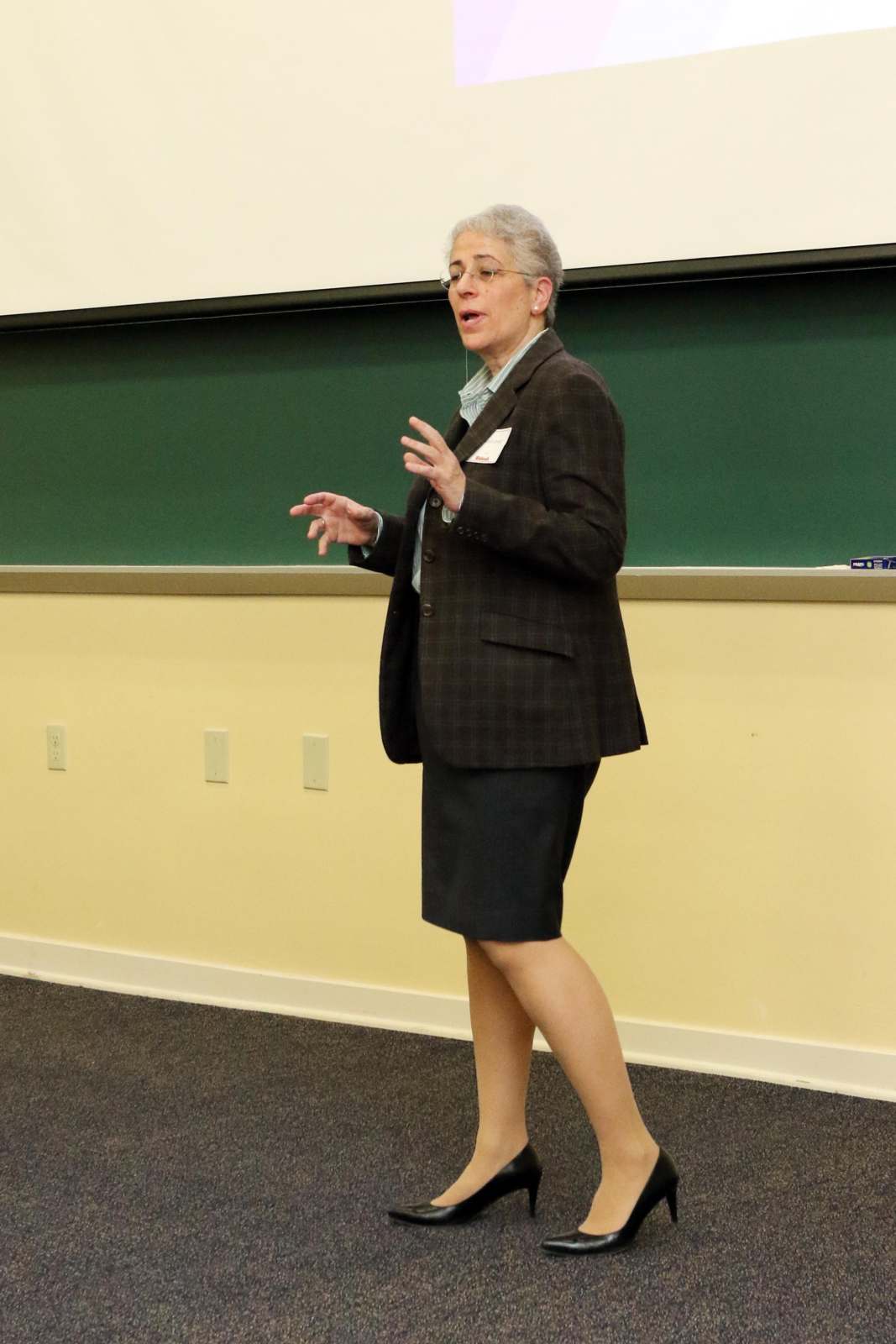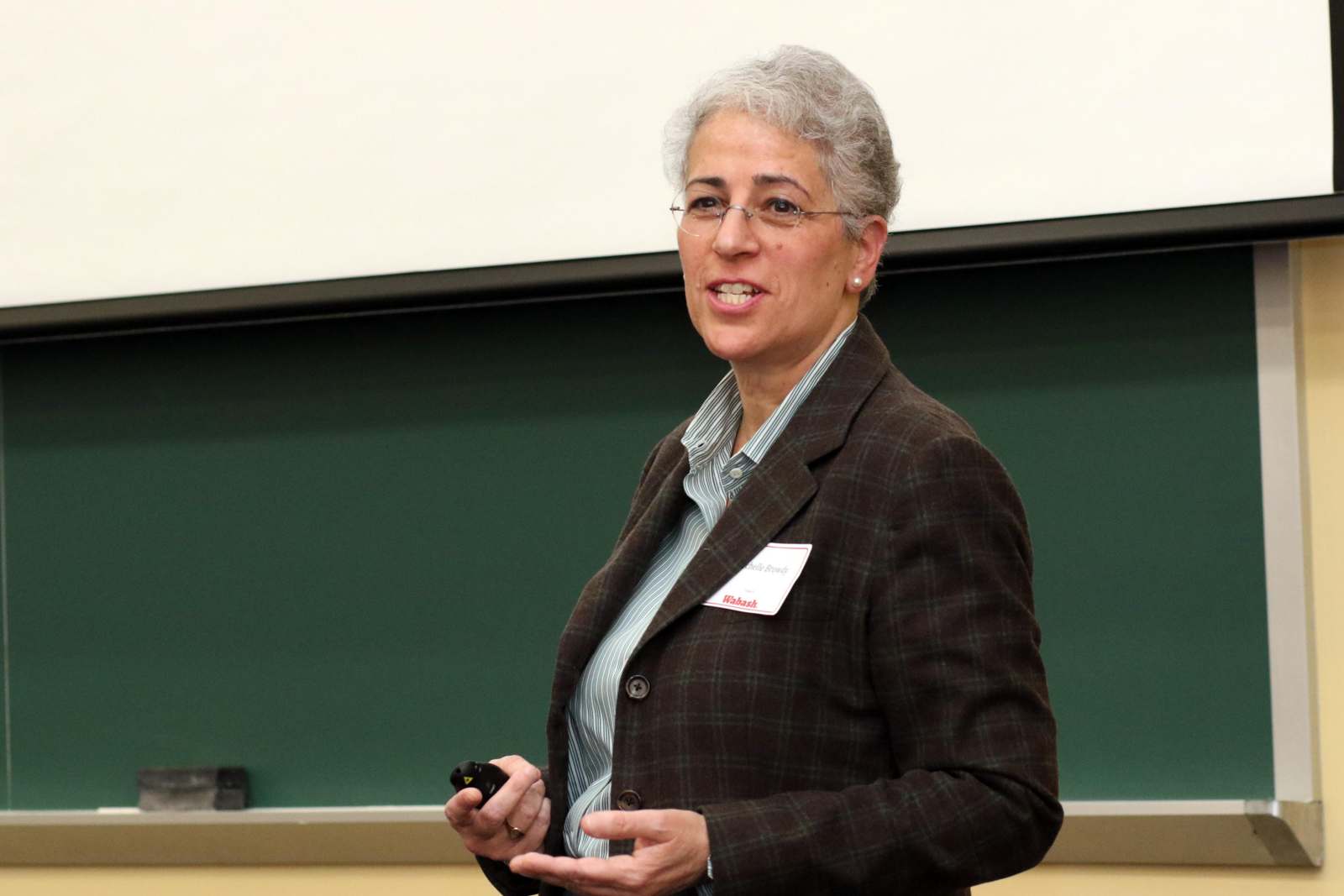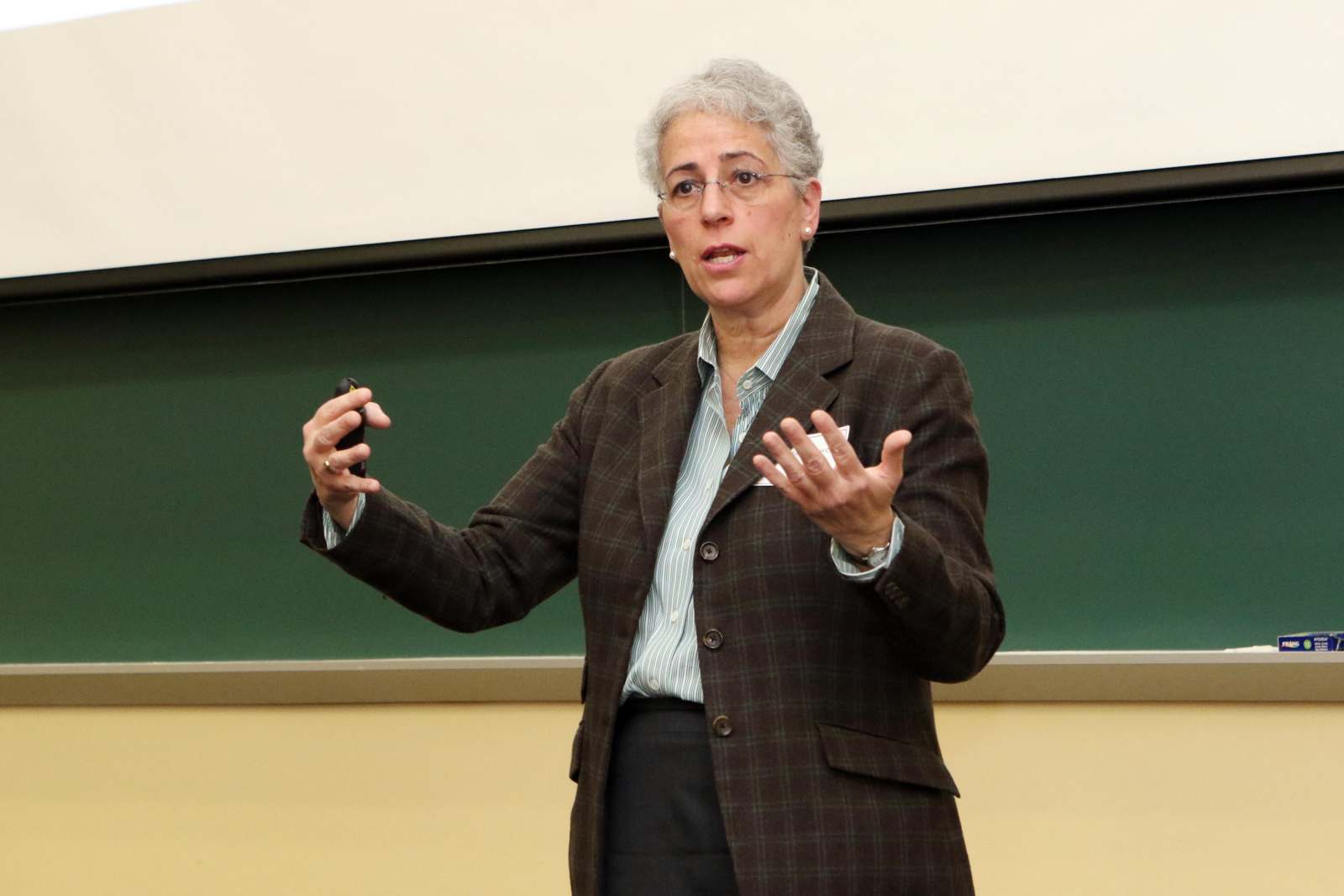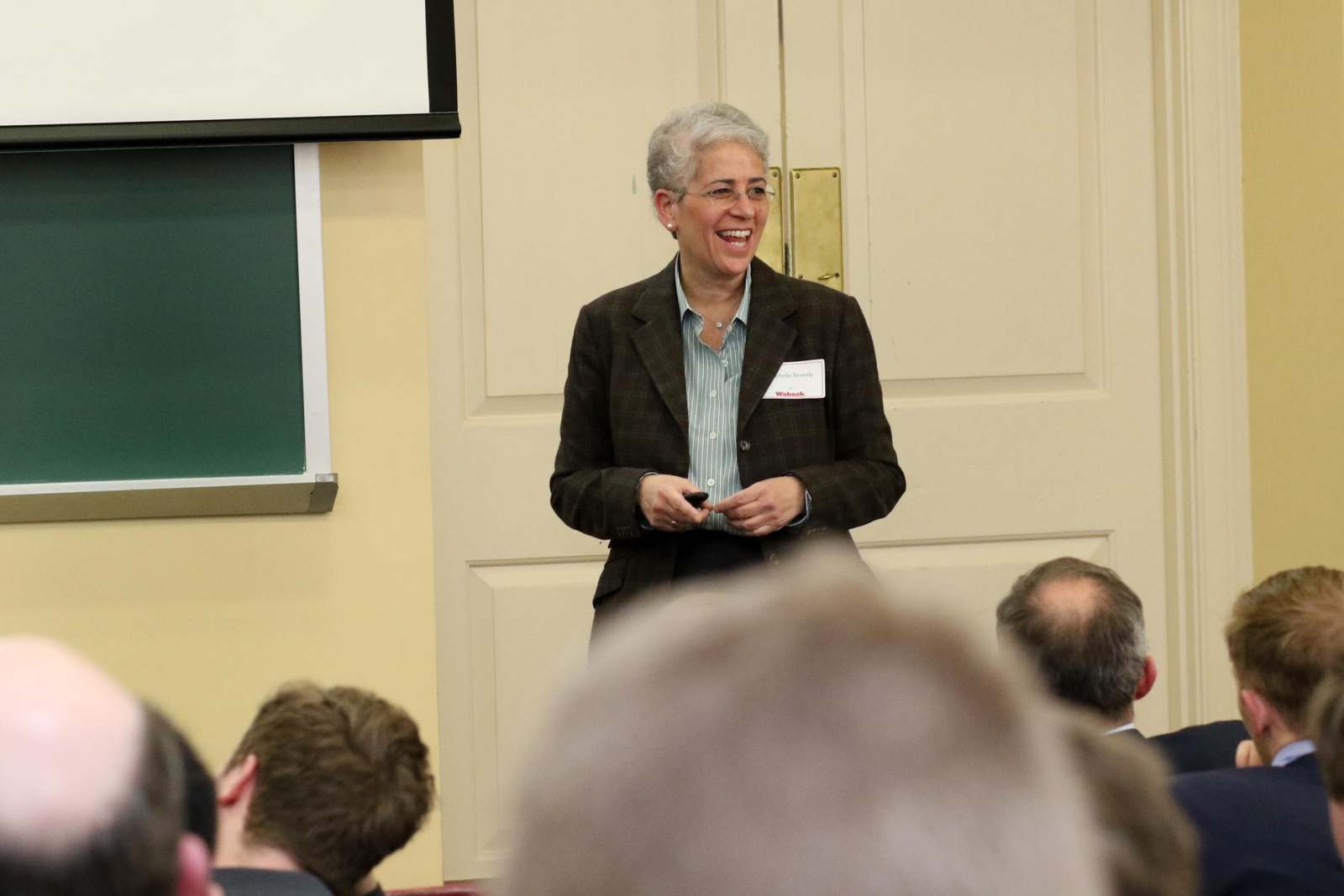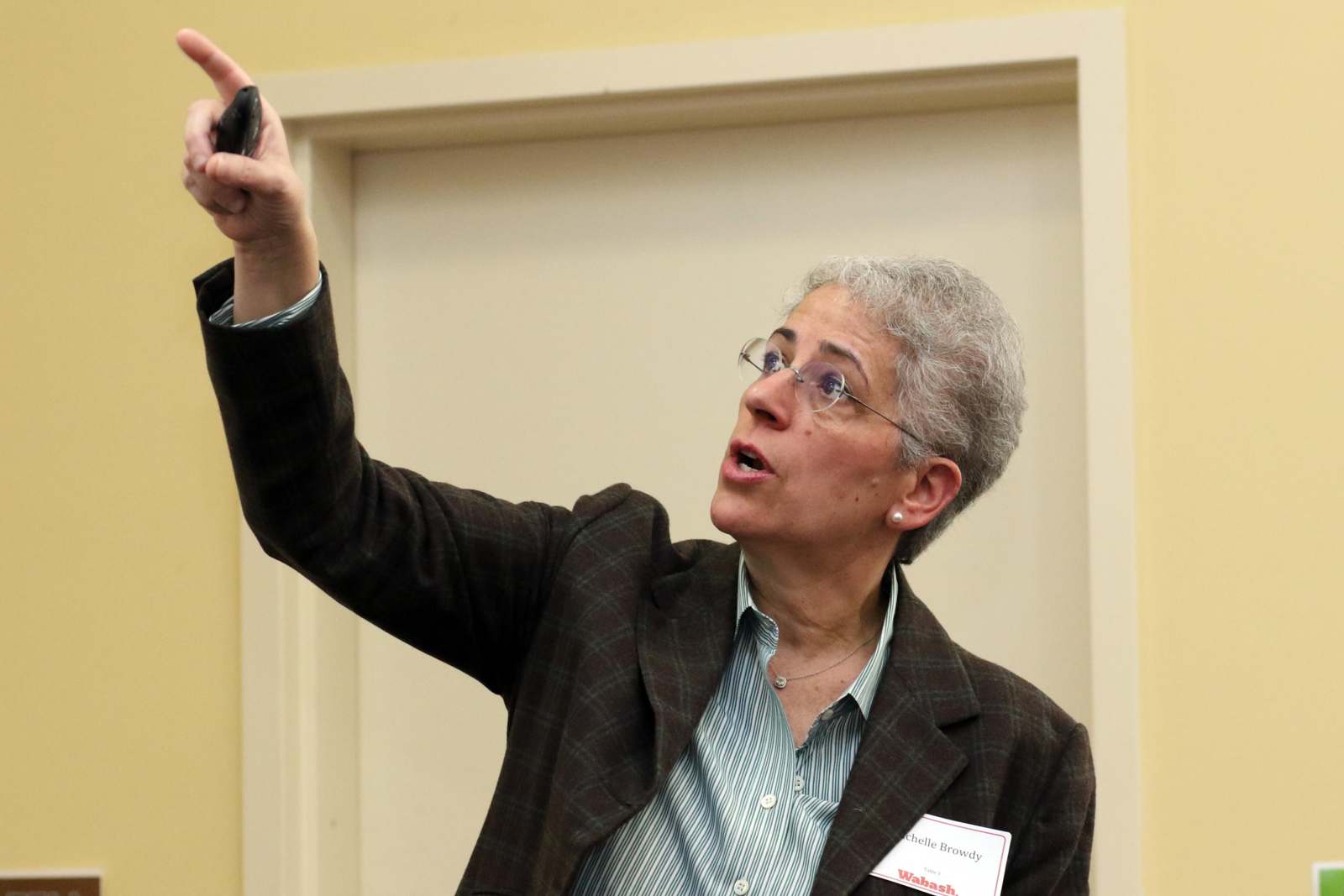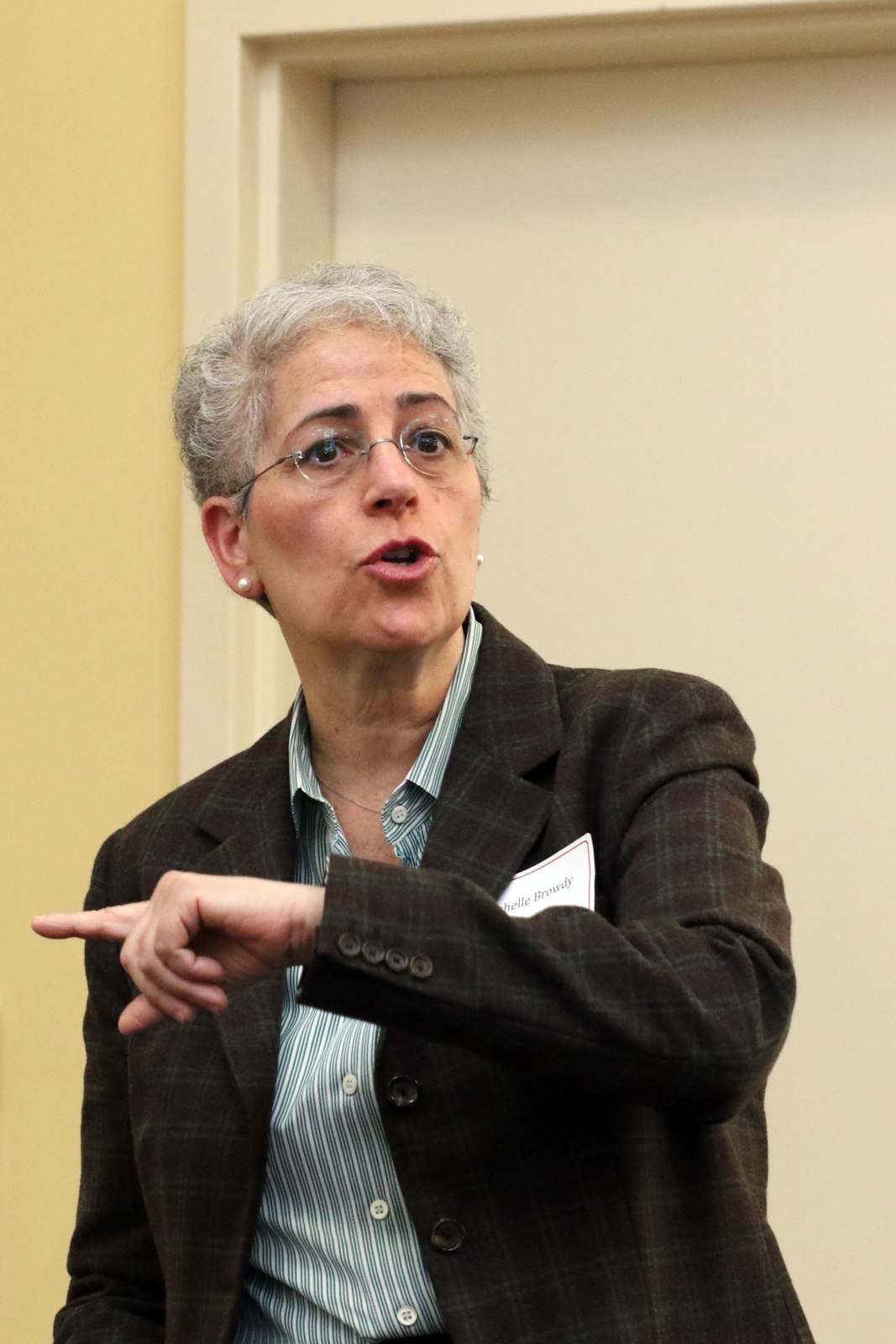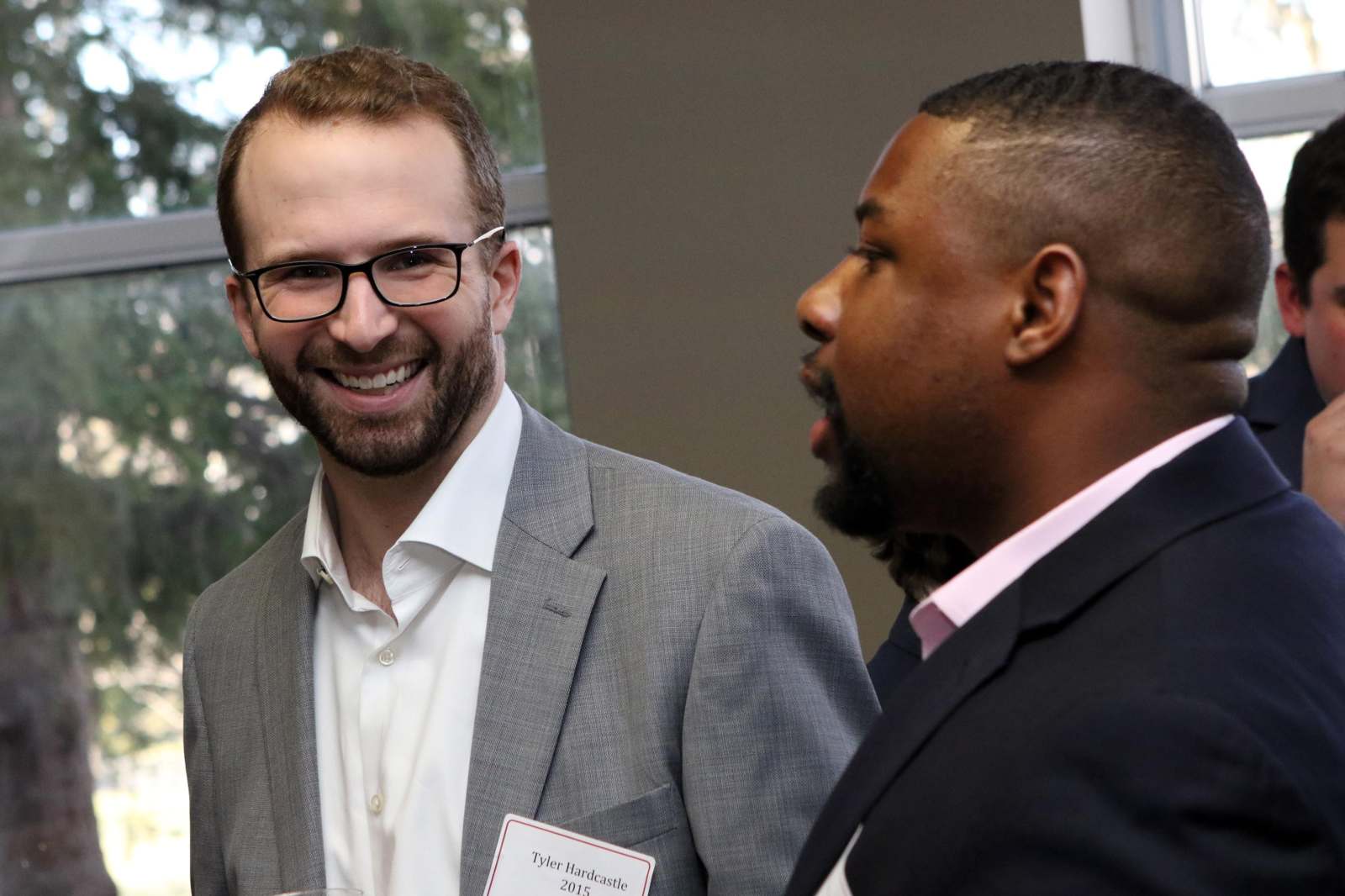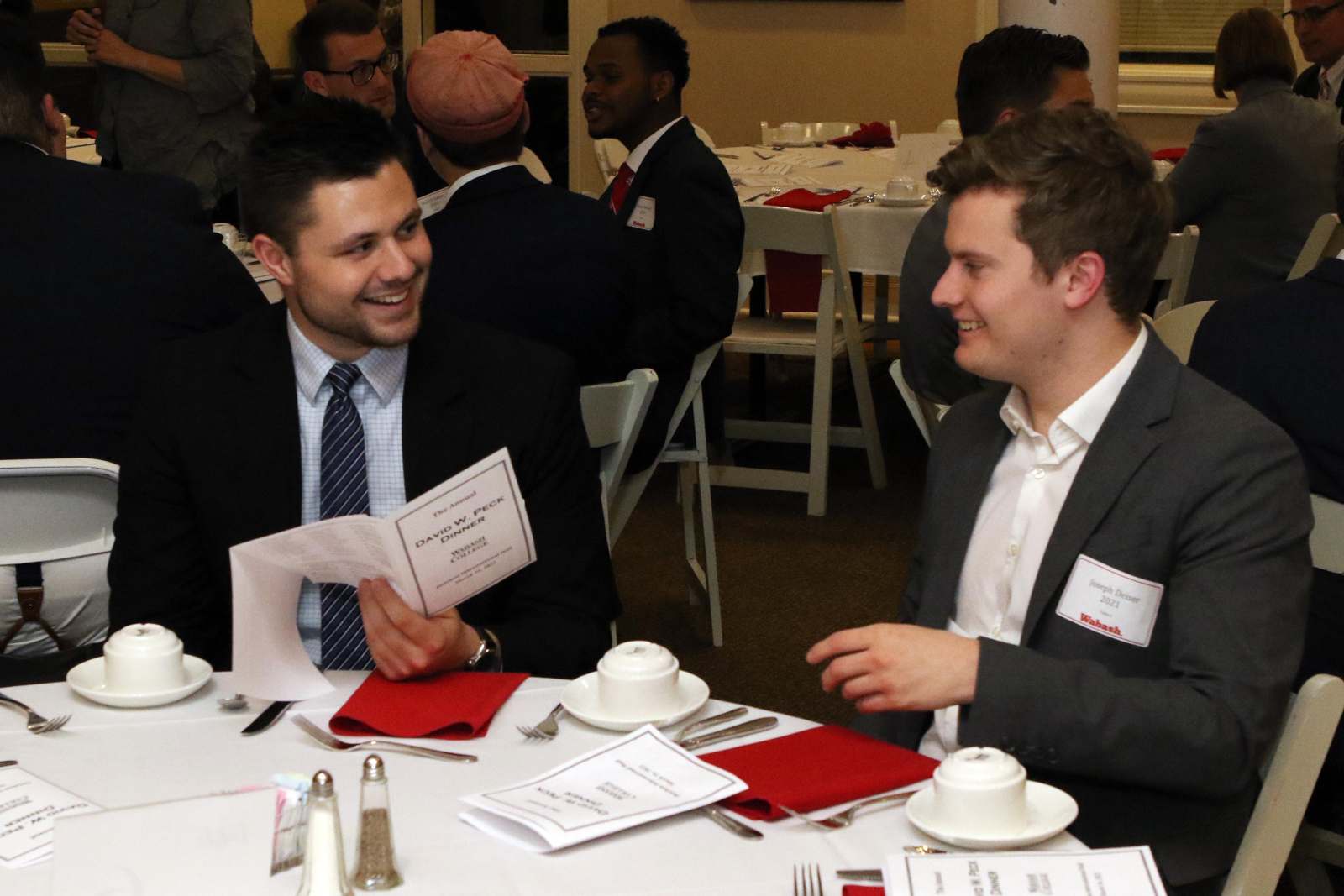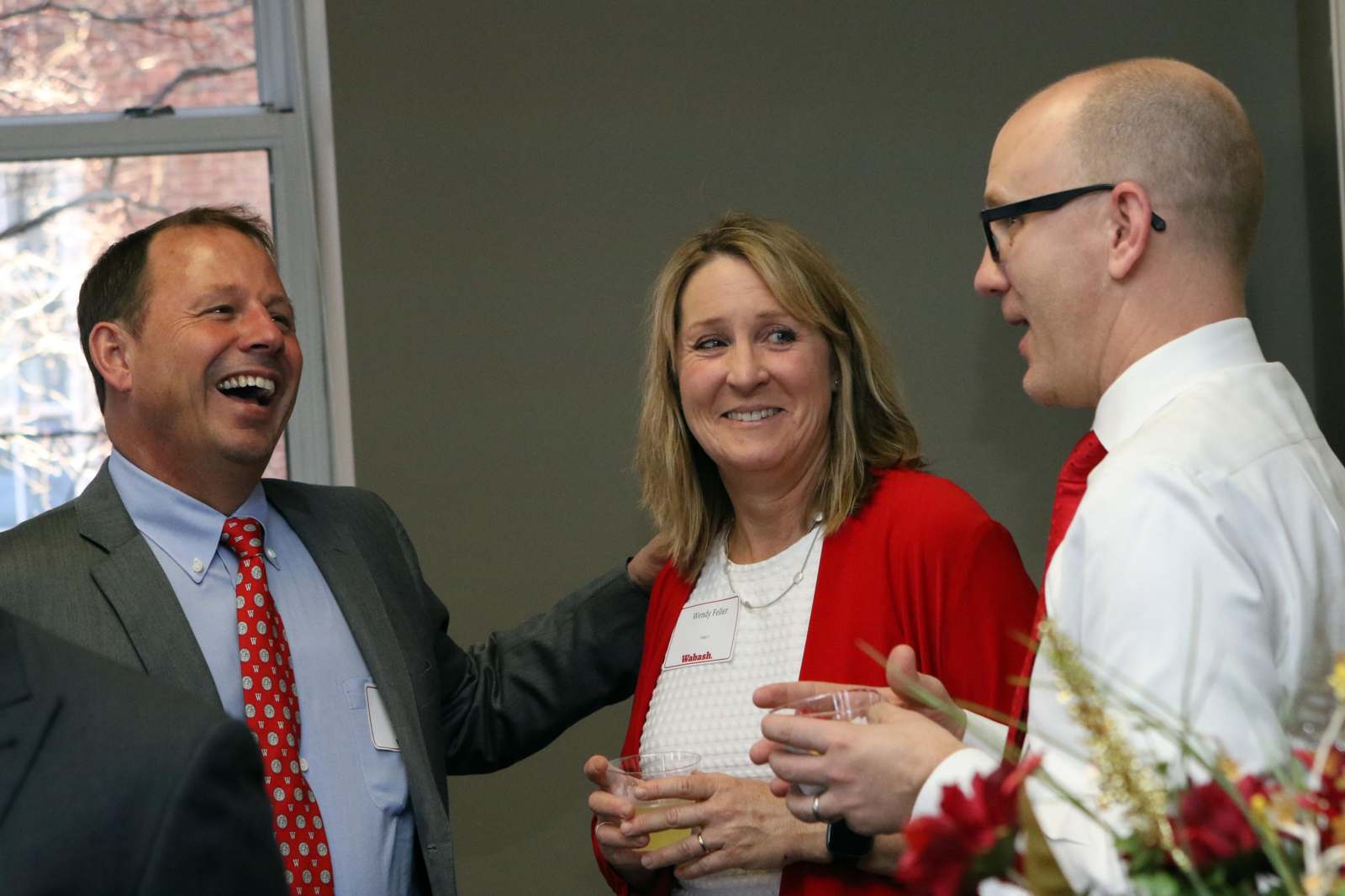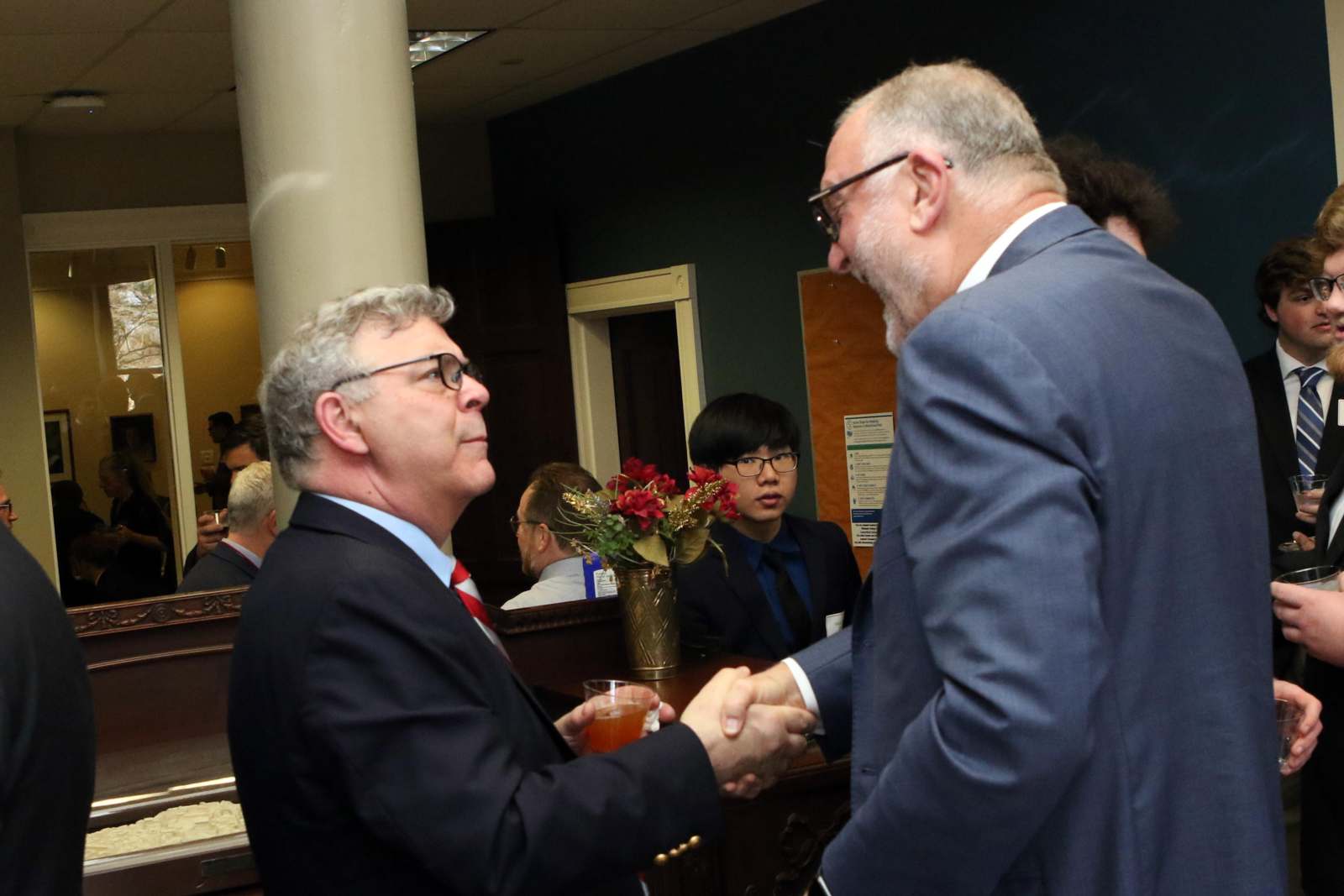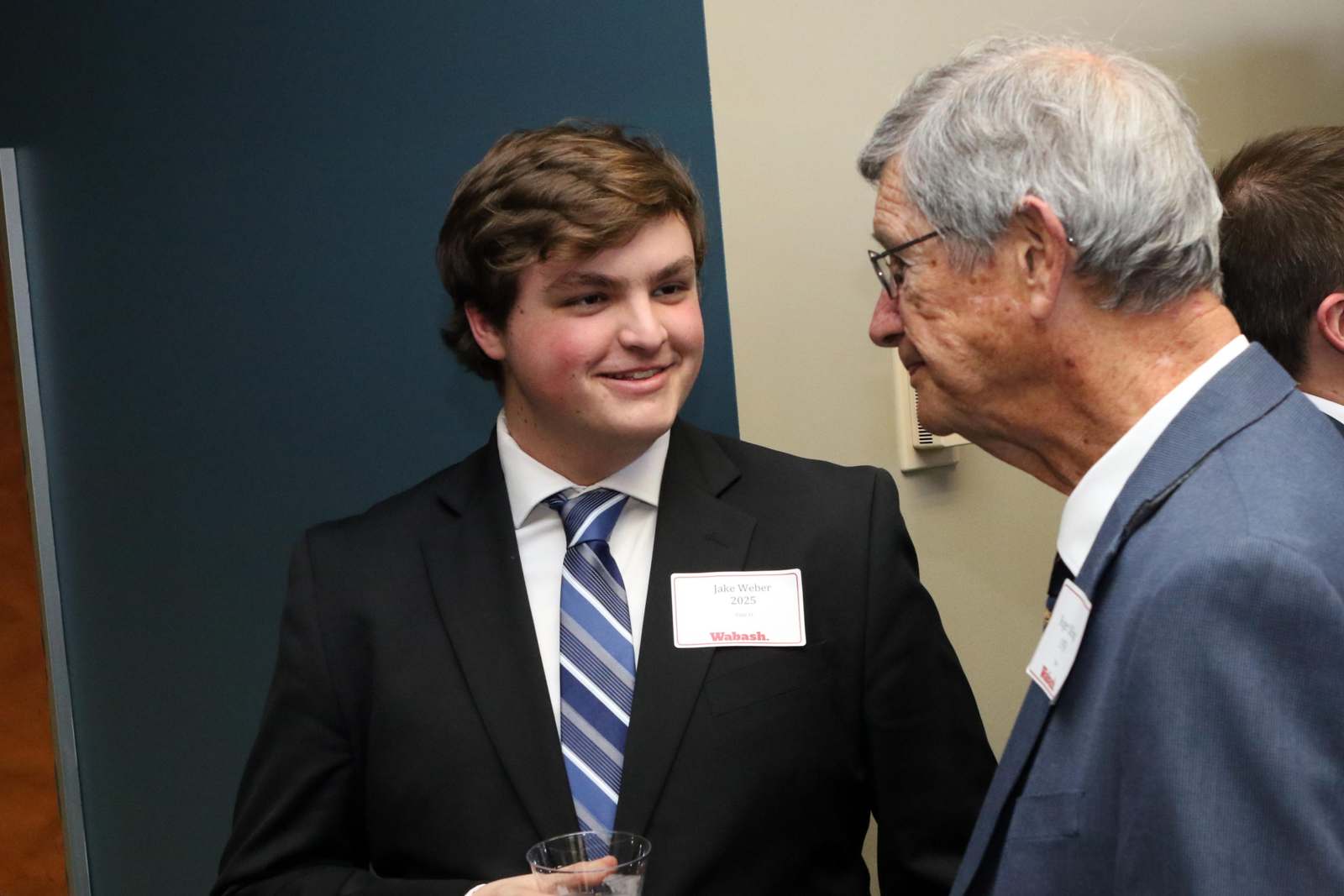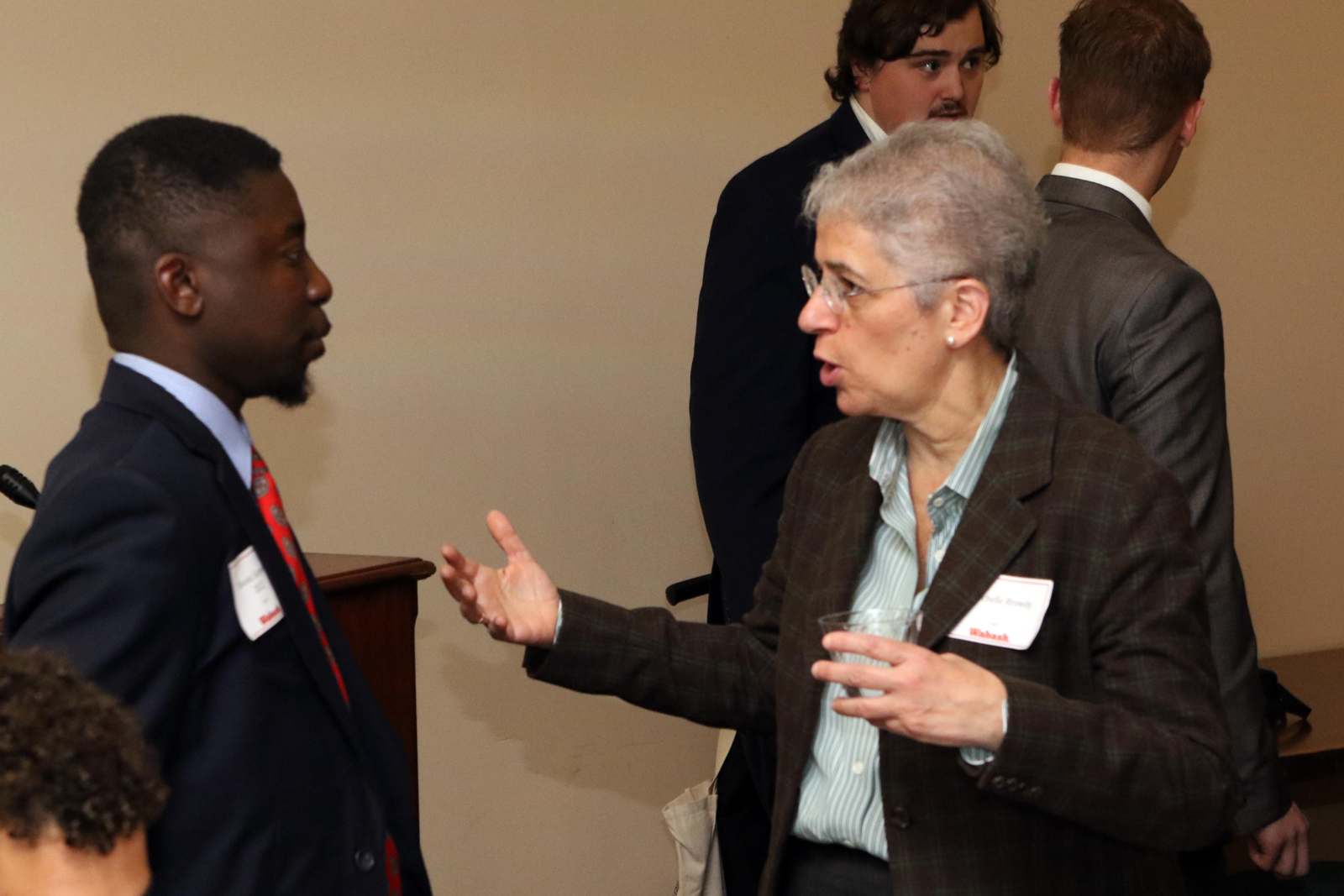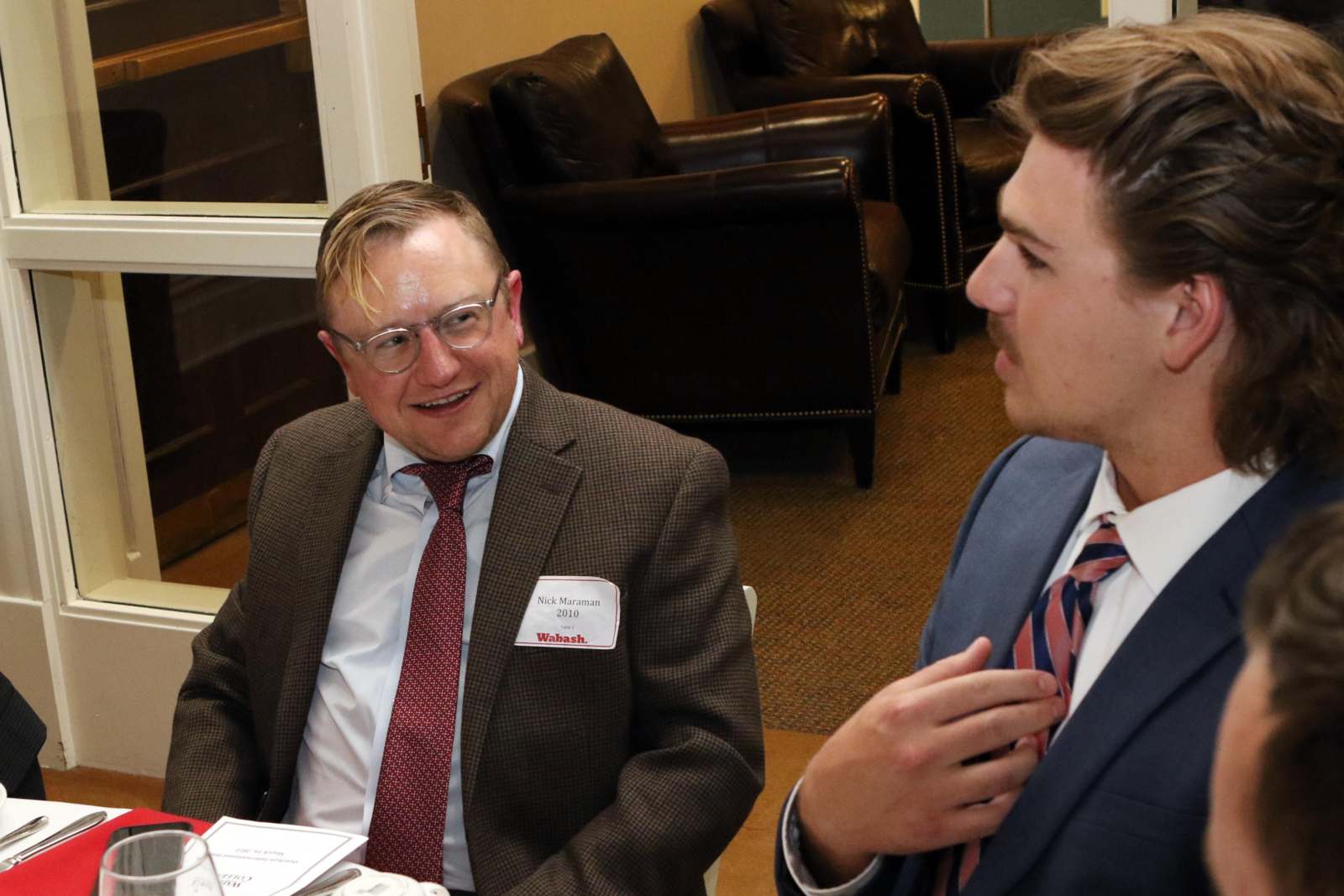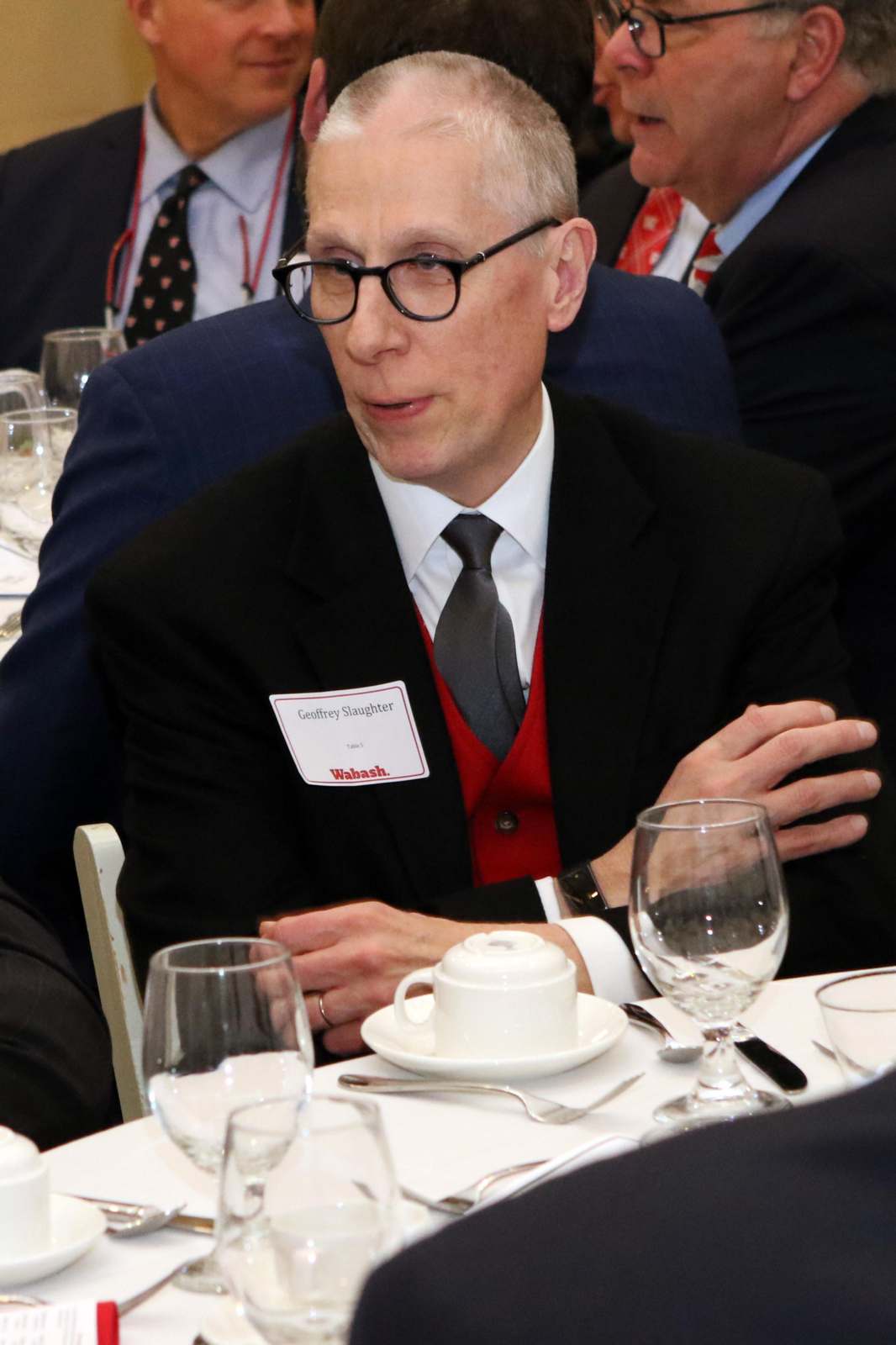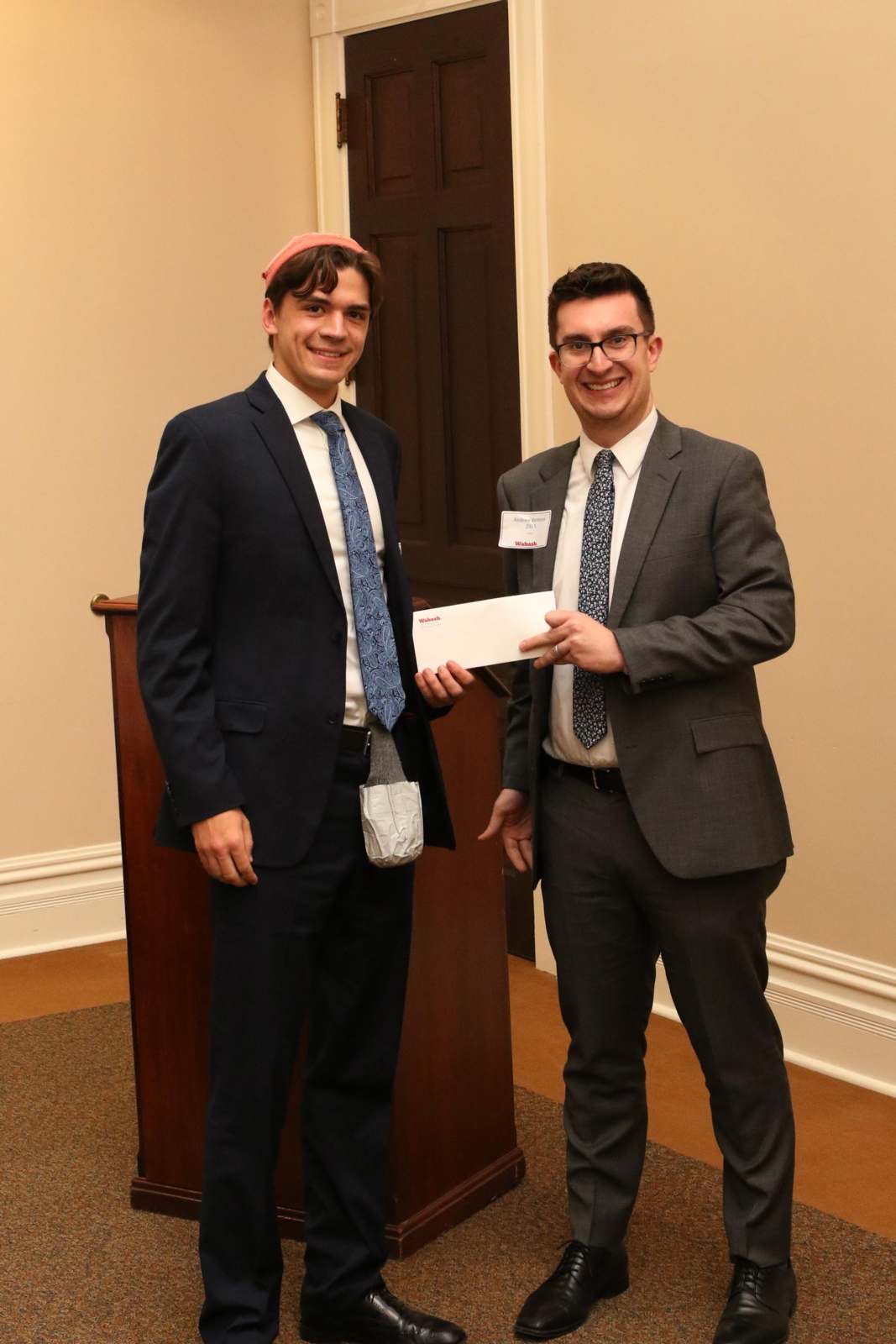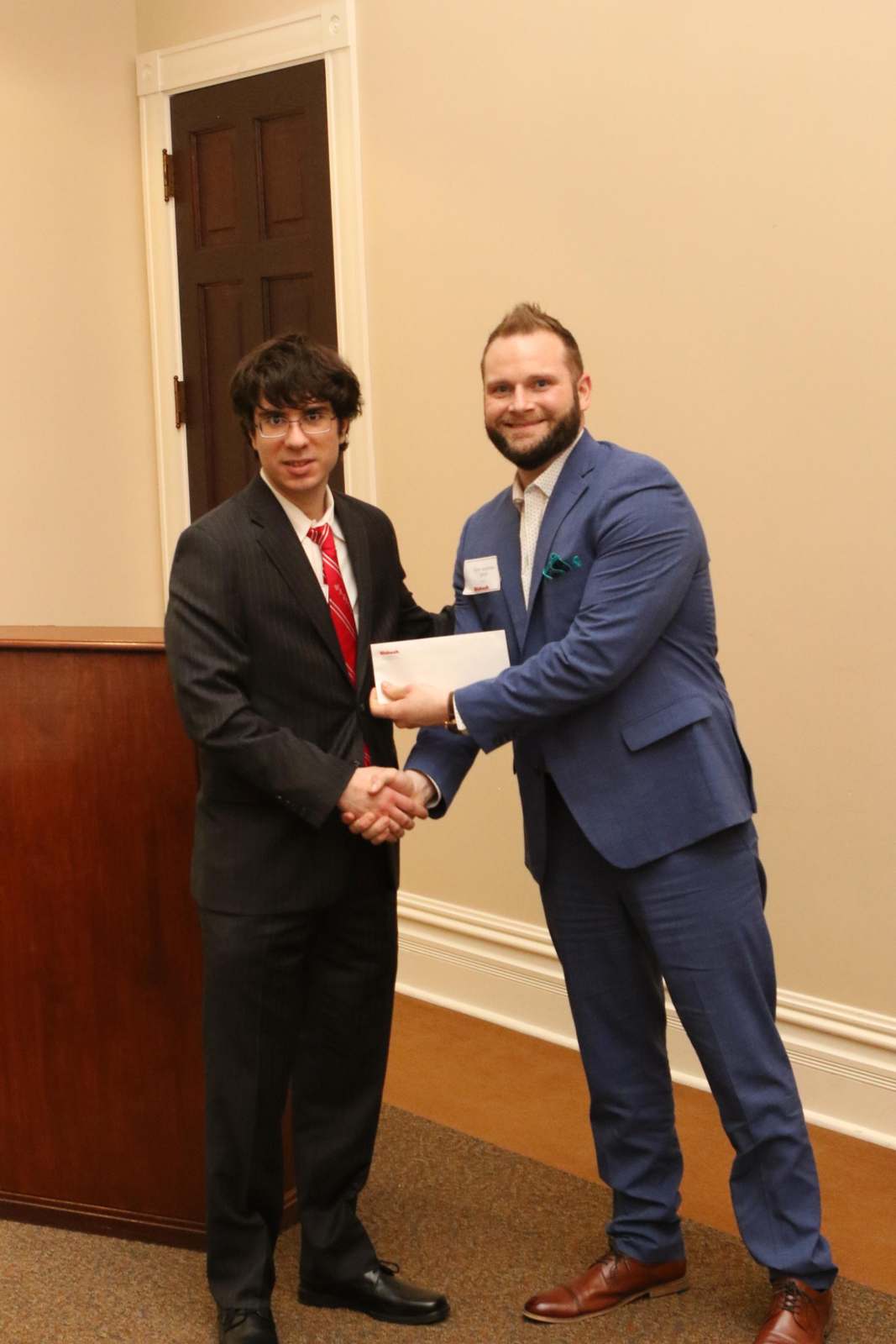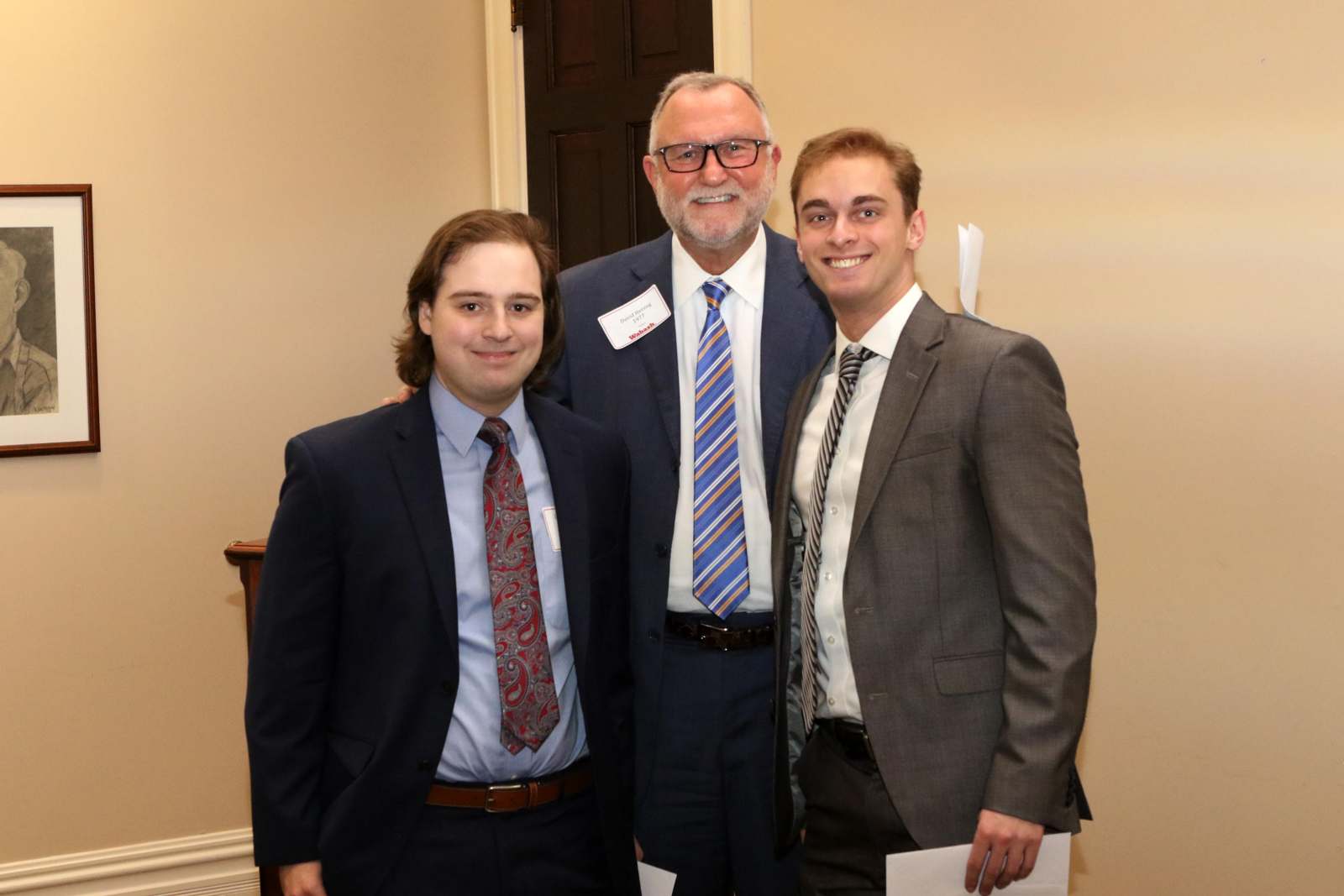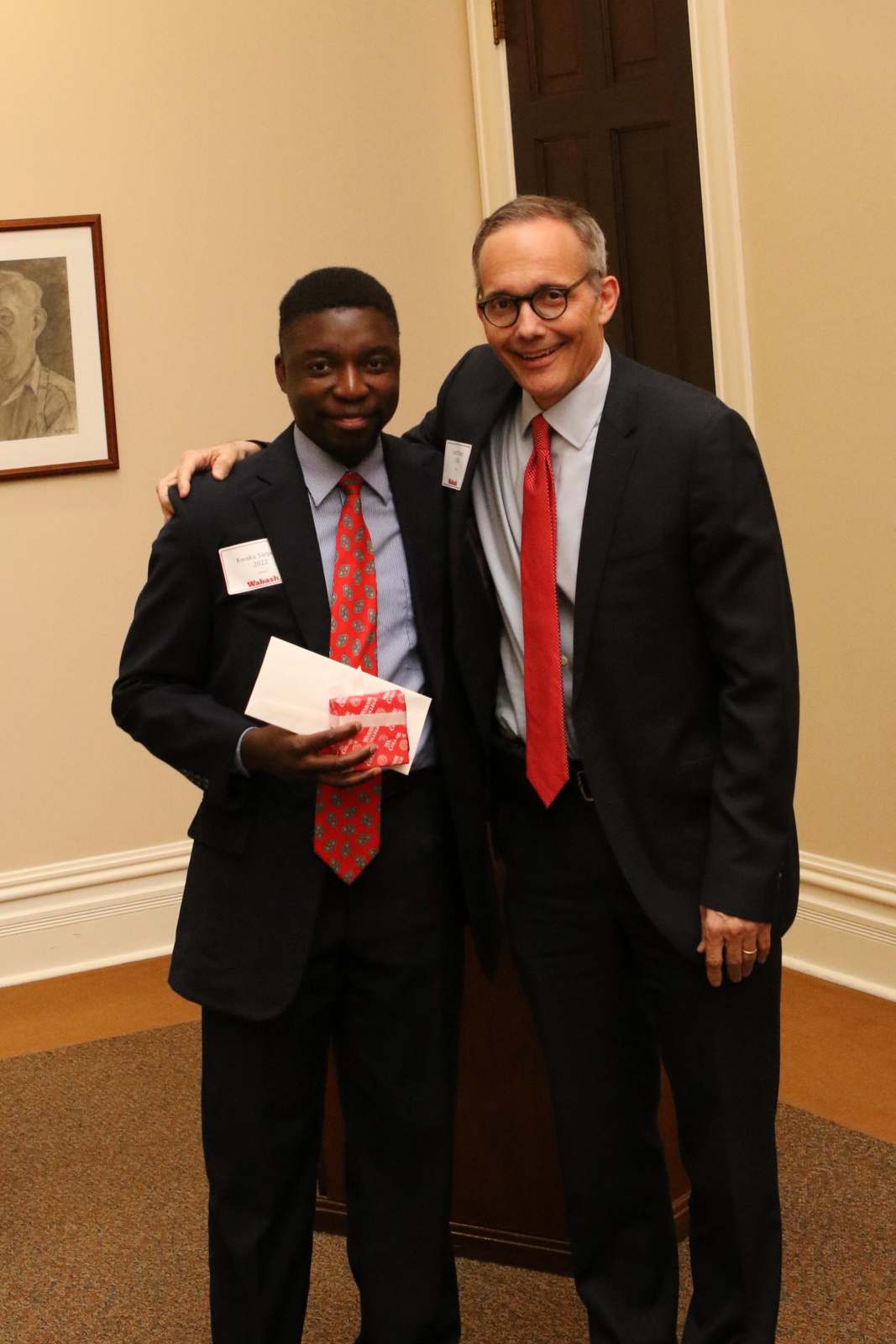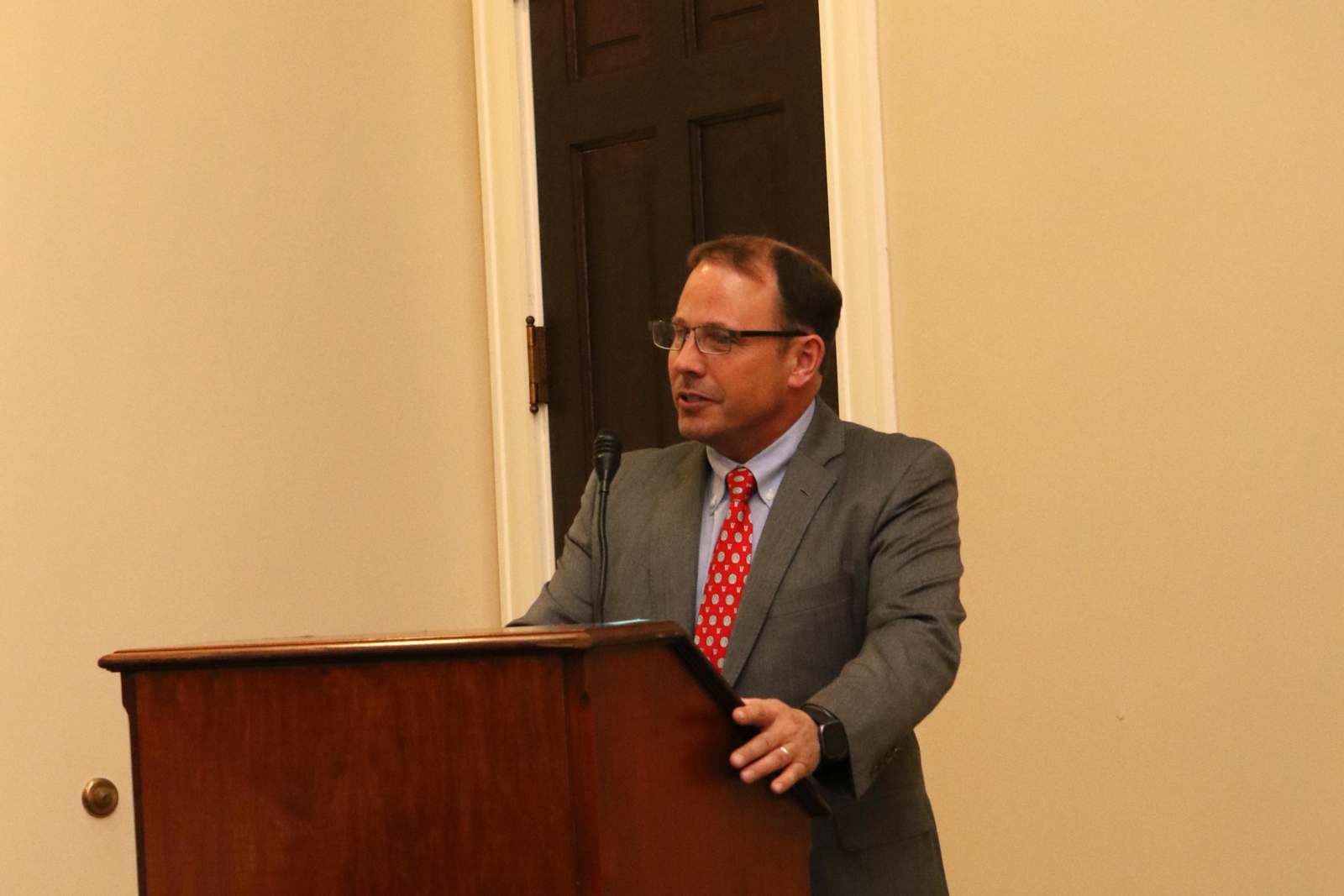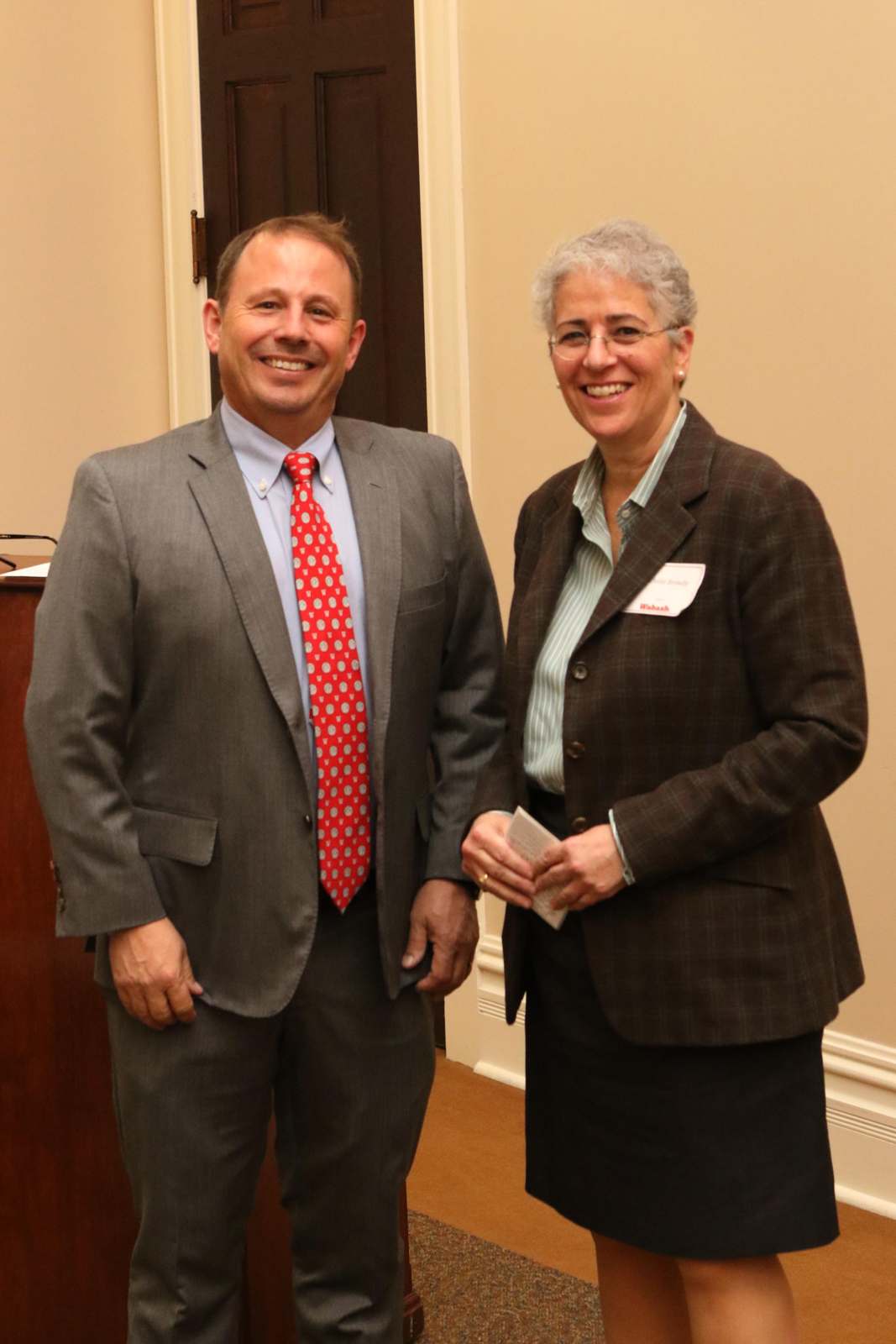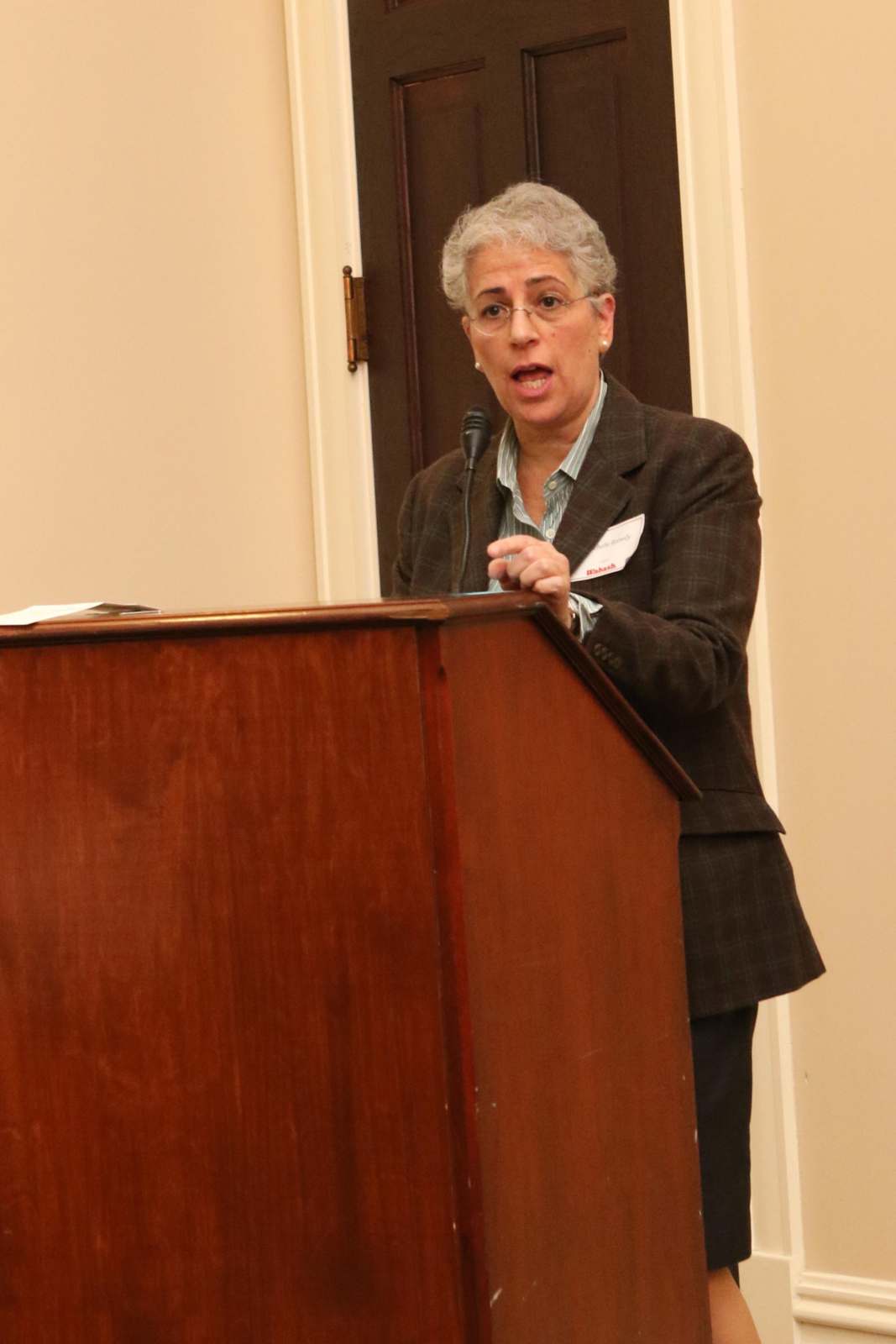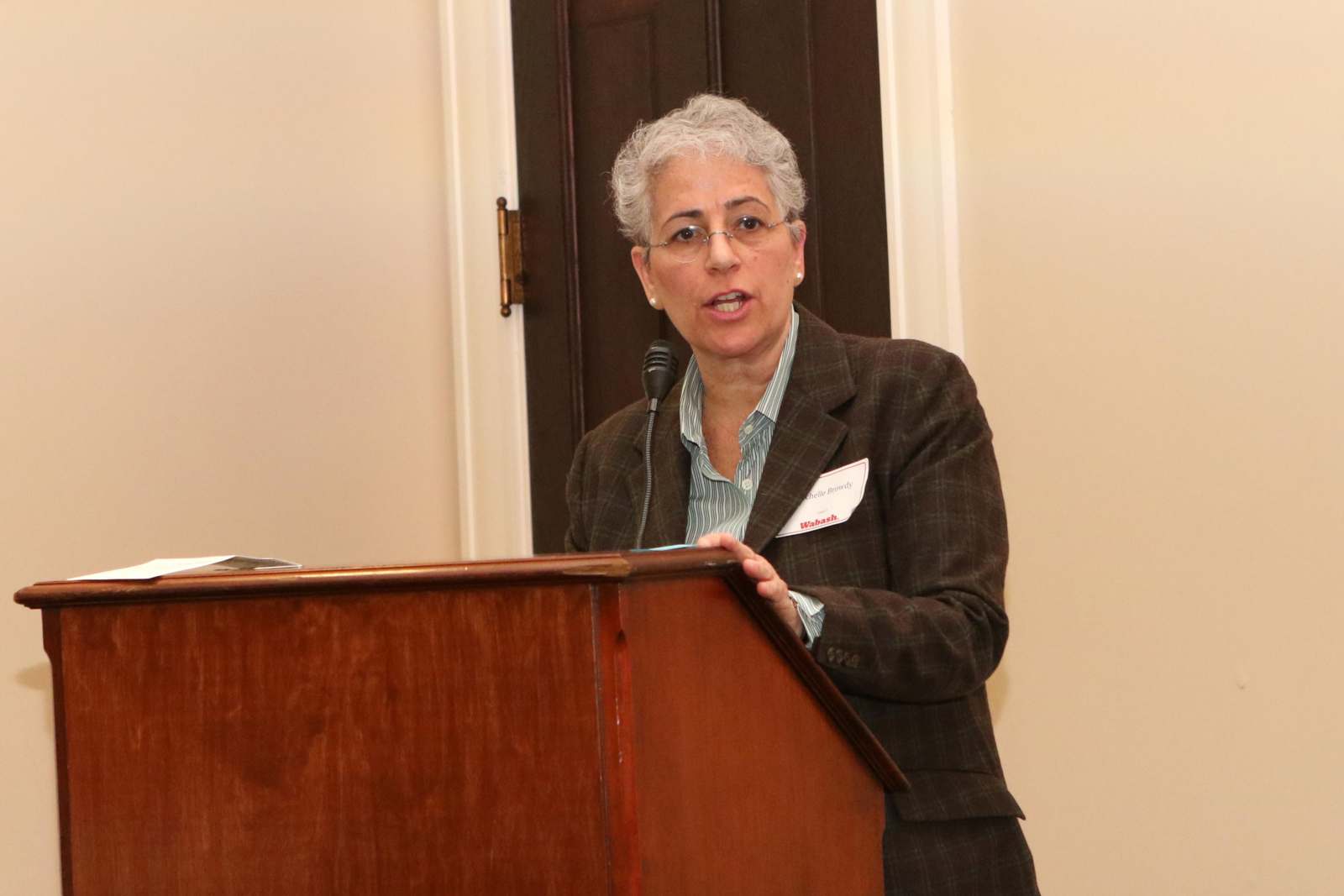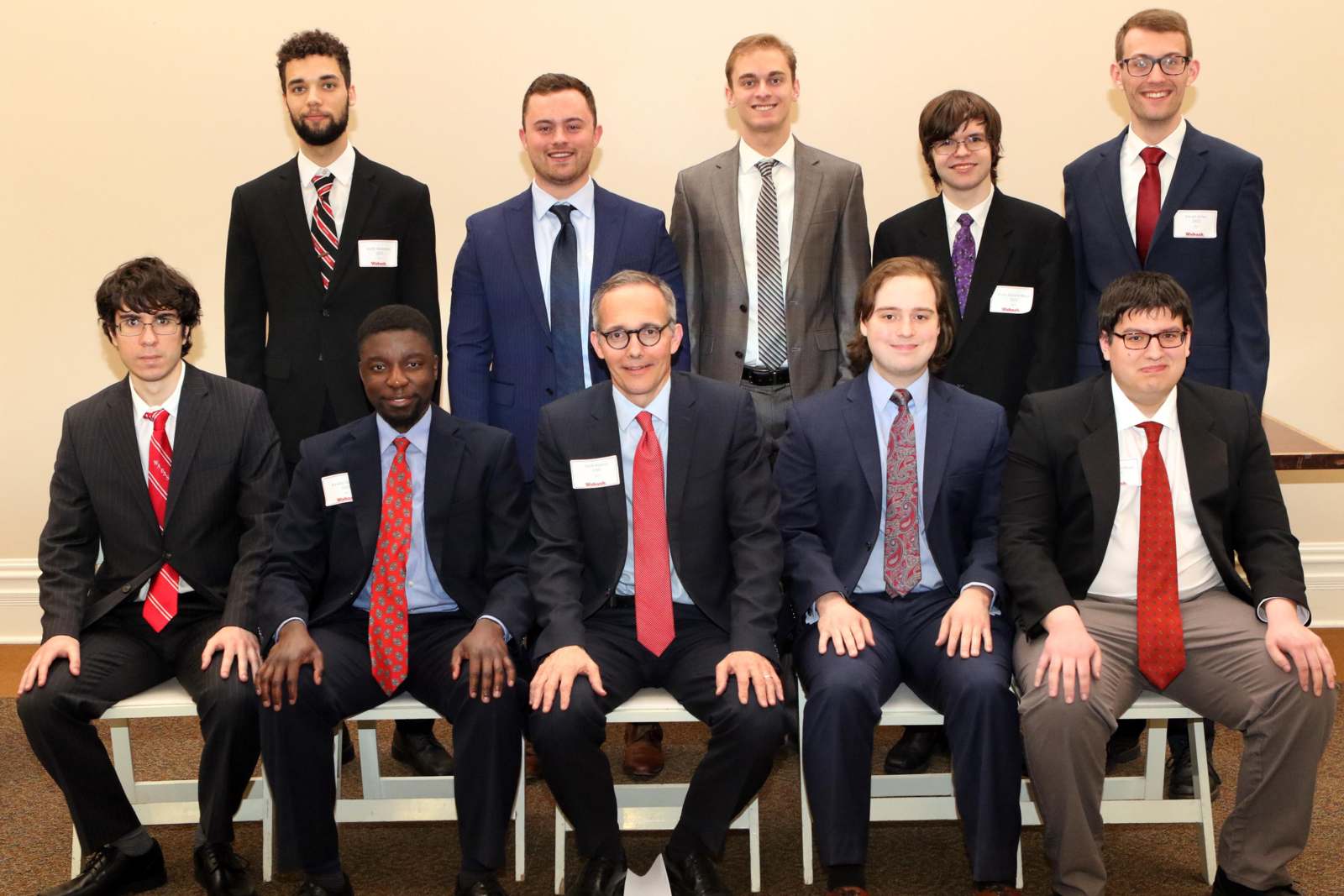David W. Peck Lecture & Dinner, March 16, 2022
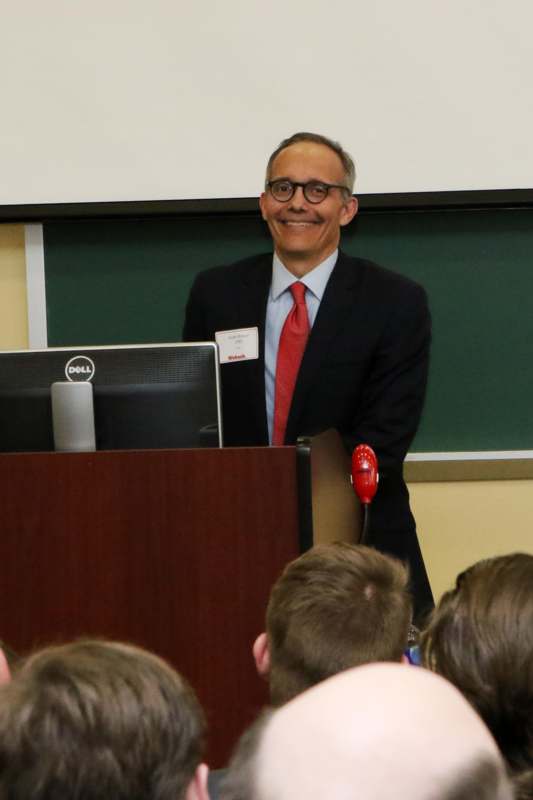
The Peck Awards Banquet honors the memory of alumnus David W. Peck, Class of 1922, a Harvard law graduate who founded the litigation department at Sullivan & Cromwell, served as Presiding Justice of the Appellate Division of the New York Supreme Court, and was a long-time member of the Wabash College Board of Trustees. Scott Himsel, Associate Professor of Political Science and advisor to the Pre-Law Society, opened the program, which featured Michelle H. Browdy, Senior Vice President, Legal and Regulatory Affairs, and General Counsel at IBM, who presented the David W. Peck Lecture, 'Technology, Trust and Society,'
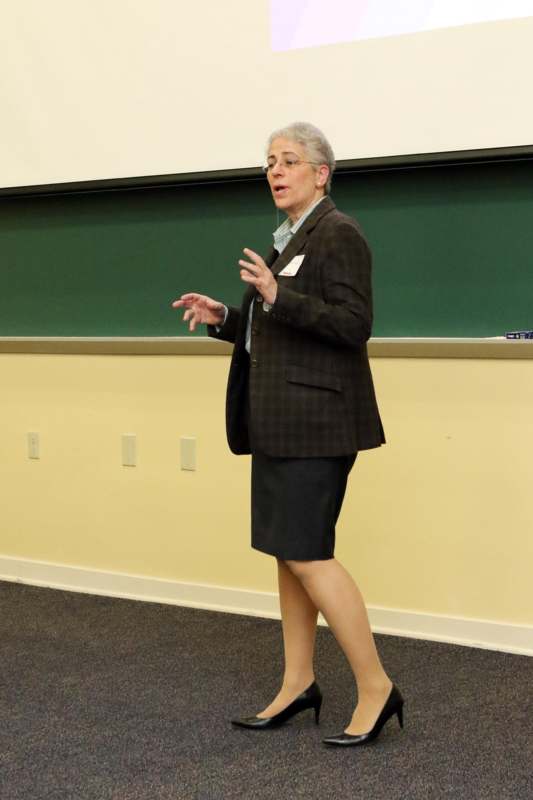
Presented here are snippets of Browdy's address: 'If technology is something that's becoming more widespread in society, and society is trusting it less, that's a problem for all of us. So I chose the topic, not because it's interesting and important to me, although I can promise you that it is. But I think it should be important for all of us. And I think particularly, there's going to be a role for our students to help us sort these through going forward…but just to give you a flavor, what we're what we found is we can do an awful lot of things with technology. But just because you can do all of these things with technology. Are there some things actually that you shouldn't do, even though technology could do it? And if there's things that you shouldn't do, even though that you can do it? Who makes those decisions? Is it the individual user who simply say, I'm not going to use an app that does that? Is it the technology companies who should self police and say, I'm not going to put out apps that do certain things? Should the government step in and tell us what we can and can't do with technology? And if it's the government, what branch of the government? Is it the courts? Is it the legislators? Or maybe because it's so widespread and international? There should be some international governing bodies? And how do we get there from where we are today? These are the kinds of questions that are really truly facing us today as a society.'
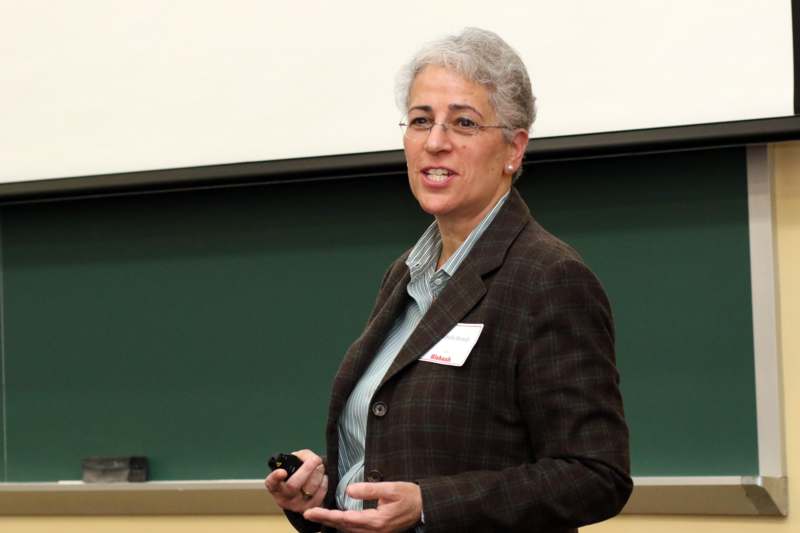
'You don't have to go back that far, just a generation or two from people in this room, where a community had a basic source of facts they got, it was a broadcaster, they listened to or a newspaper they all read. And the fact that it was a single source of truth, by the way, doesn't mean that it was accurate. And it doesn't mean that it was unbiased. But at least the community had a set of facts that they could make decisions based on… Now with your own family, in the same house, in the same room, everyone has their face and their own screens. And they're getting their own set of facts. Technology is what enabled that. This didn't happen overnight. It happened over the course of decades. And I think for a long time, people were very eager, right? There's a new app, there's a new phone, there's a new product, and we were embracing technology. And I think in the last 10 years or so, you're seeing the tide change a bit and we're starting to understand more -- in a way that maybe was always present, but we didn't really focus on it -- some of the dangers of technology.'
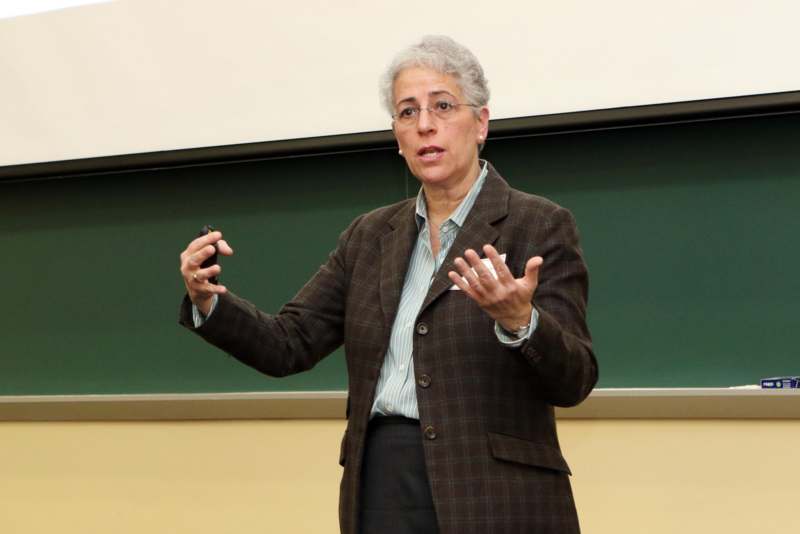
'IBM is an enterprise technology company. We've been in business for more than 100 years. And we're familiar with the concept that the kinds of technology that we introduce change the way people work, it changes their interactions with technology, and there's a responsibility to do this in a responsible way.'
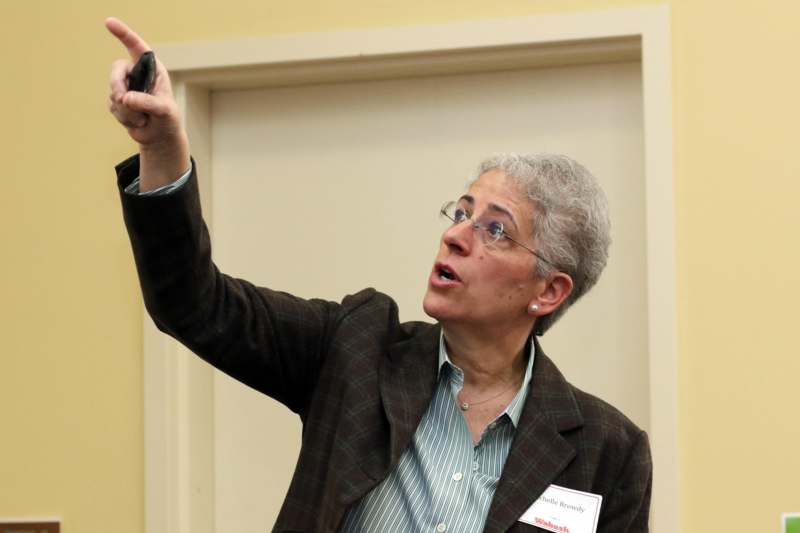
'When we were in school, none of these issues that we're talking about existed. You didn't have cell phones, you didn't have the internet, you didn't have platform companies. We weren't talking about privacy, or cyber, AI, or any of those issues. Yet now, decades later, in our respective professions, in law, in political science, and journalism, we have to help people deal with these issues. How do you do that? You do it by learning how to learn. You get a broad base understanding and the liberal arts, you learn to reason and think and argue and communicate. You get a broad base understanding and ability to work with a bunch of different people with different viewpoints of your own than your own. And that will help you solve these problems.'
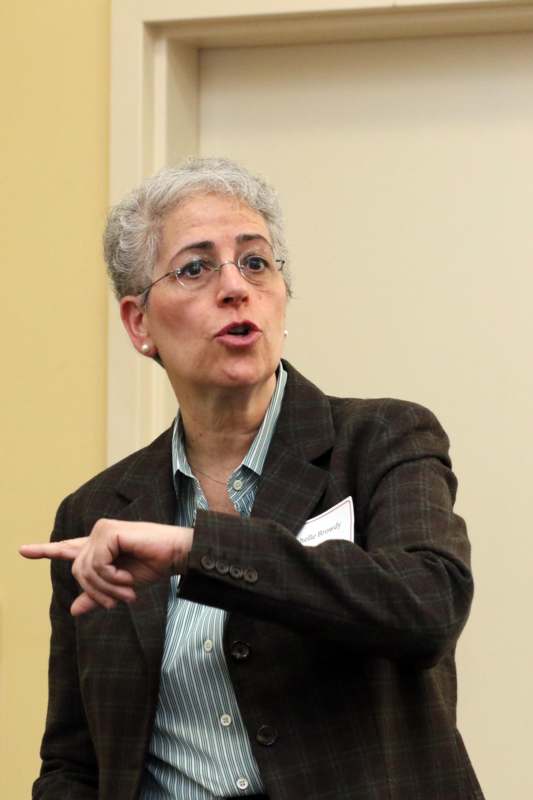
'We need diverse teams and talent to help us solve problems. The data shows time after time after time that diverse groups solve problems better. Remember, diversity comes in a lot of different forms. It's not just race, gender, and ethnicity, it’s background, training, perception, experience, and something our students will always be able to bring: a good dose of Midwestern common sense. Don't underestimate the value of that…When I read about Judge Peck’s background, I have to imagine that part of what he brought to the practice of law in New York to be so successful, wasn't just brilliance in law, but that good dose of Midwestern common sense. It makes a difference.'
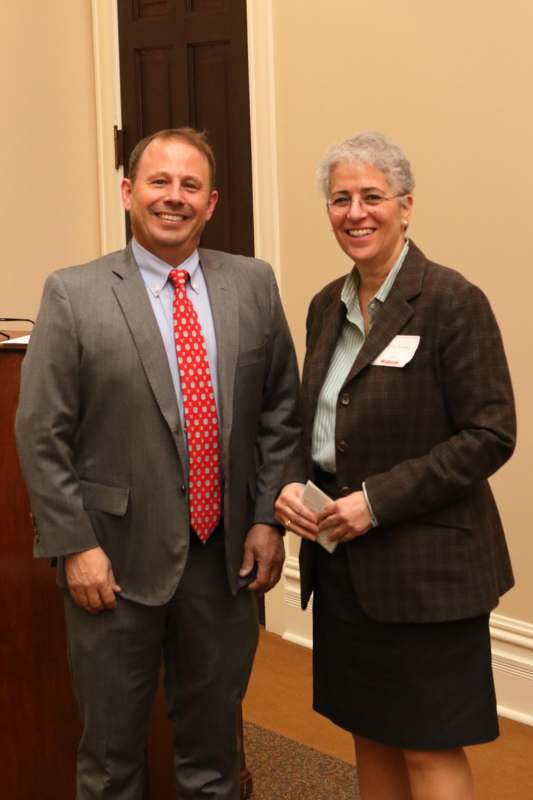
Feller said of Browdy, 'You bring together an extraordinary set of skills at IBM: your intellect and superb judgment, your vast experience in the courtroom, your hunger for knowledge, and your ability to anticipate what's coming next. Your impressive achievements at the highest level of law and business, coupled with your genuine kindness and humility, provide a perfect example for our young men to follow.'

